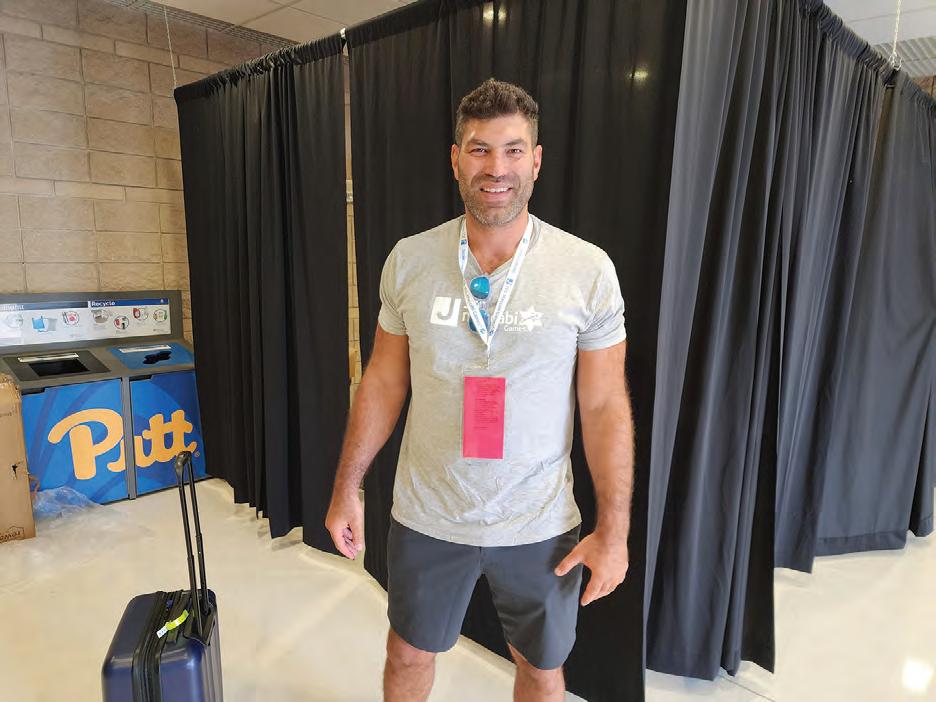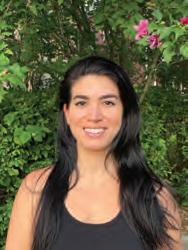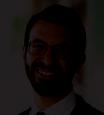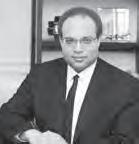

Maccabi athletes take the field




By Andrew Rich | Sta Writer
The JCC Maccabi Campus Games teen athletes descended on PNC Park as a part of Jewish Heritage Night on Tuesday, Aug. 5, taking a night off from competition to watch some Pirates baseball.
The night began with a parade around the field. About 2,000 teen athletes from Montreal to Ukraine to Pittsburgh, as well as coaches and parents, took a lap around the dirt warning track that circles the field.


Jewish Community Center of Greater Pittsburgh Board Chair Scott Seewald threw out the ceremonial first pitch before the game began. He pitched to his son Daniel as the crowd cheered them on.
“I don’t mind speaking in front of crowds; I don’t mind sharing Jewish joy and talking up the JCC — throwing a pitch is making me a little nervous,” Seewald said.
The coming together of sports and Jewish culture was abundant throughout the night.
Yellow caps — stitched with a Star of David and the word “Pirates” spelled in Hebrew lettering — could be seen all around PNC Park, with Jewish Pittsburghers cheering on the Pirates against the San Francisco Giants (the game ended with a Giants win, 8-1).
This year’s Maccabi Games had a new model of operation. Rather than relying on home hospitality, athletes stayed in the dorms at the University of Pittsburgh.
“Over the last few years, it’s gotten more and more difficult to find families who are willing to house an athlete,” said the Games co-Director Lynn Zelenski. “So the approach was made to the University of Pittsburgh. They were thrilled. They’ve been wonderful partners.”
The new model enabled the planning of evening activities for Maccabi participants, including Jewish Heritage Night at PNC Park, “college night,” evening baseball and basketball games, and interacting with a

By Adam Reinherz | Senior Sta Writer
Camaraderie, Jewish joy and support for Israel made the JCC Maccabi Campus Games memorable. Safety and security issues did not.
That was deliberate, explained Eric Kroll, Jewish Federation of Greater Pittsburgh’s deputy director of community security.
Beginning in October 2024, Kroll and colleagues met weekly to design an environment where nearly 2,000 visiting athletes and another 3,000 coaches and spectators could comfortably experience the Games.
“We didn’t want everyone constantly seeing security or law enforcement,” he said. “We wanted people to participate in all the events and feel good about the city.”
Mostly, he continued, “We wanted parents to feel that their children were in good hands.”

Montana Tucker visits
Jewish baseball players participating in the JCC Maccabi Campus Games enter the Petersen Events Center in Oakland.
Photo by Adam Reinherz
Scott Seewald, board chair of the Jewish Community Center of Greater Pittsburgh Photo courtesy of the Pirates
Alina / Adobe Stock
Headlines
Chabad of Carnegie Mellon’s new facility is a testament to organization’s growth
By David Rullo | Senior Staff Writer
If someone wanted to learn the secret of Jewish engagement — and the steady growth that eludes most congregations today — they might want to chat with Chabad of Carnegie Mellon University’s Rabbi Shlomo Silverman.
“We’ve had steady growth over the 17 years that we’ve been here,” Silverman said. “Student involvement is definitely up.”
To accommodate that growth, the organi zation recently purchased the house next to its current location. The plan is to tear it down and build a new Chabad center.
The new structure on Beeler Street will be modern and have space for all the organization’s needs, Silverman said.

“We’ll have a huge social hall, a commercial kitchen,” he said. “All of the bathrooms are handicap accessible and there will be an elevator. There will be ramps, a shul and spaces for students to study. We’ll have a game room that will be a space to have fun and play some Nintendo.”
The rabbi’s goal is for the new house to feel like a home, complete with a fireplace and bookshelves.
“I want people to feel that they’re in an environment that’s conducive to studying and relaxing,” he said. “We’re going to create a fivestar Chabad house that is going to be awesome.”
Achieving that, Silverman said, will help prepare the university’s Chabad center for the future and lay the groundwork for hiring more staff.
“We have a need to fulfill,” he said. “There are many organizations that are doing things and have buildings and are suffering, and shuls that are merging, and our question is, ‘What do we have to do to keep the youth connected and growing?’ That’s what we’re excited about.”
And while the lot has already been purchased and renderings created by architecture firm
of CMU's new
Perfido Weikopf Wagstaff and Goettel, Silverman said he’s just begun the fundraising to complete the project — he hopes to raise $7 million, with an eye toward opening the house in 18 to 24 months.
Silverman said he’s talking with larger donors now and plans to launch a full fundraising campaign soon.
“Anyone that wants to talk about sponsoring a room or the building, or putting their name on something, can reach out to me,” he said.
He also needs to get approval from the city’s zoning board, something he doesn’t believe will be an issue. The university, Silverman said, is already on board.
The rabbi is direct when asked about the growth Chabad of CMU is experiencing. The secret sauce, he said, comes down to “authentic Judaism.”
Silverman recently returned from a Chabad on Campus international conference, a gathering of 150 Chabad rabbis from some of the 500 colleges and universities that have Chabad houses.
“People are looking for what’s real,” he said.

“They’re not looking for what feels comfortable at the moment they’re in.”
The important thing, he said, is to cater to CMU’s students while understanding they are different from those at other universities — even neighboring University of Pittsburgh. The two groups of students, he said are like “apples and oranges.”
CMU students tend to be more studious and focused on their work, he said, going so far as to say they’re a little “nerdy,” a label he identifies with.
“We’re the nerdiest school in the world — I think the bagpipes put us over the edge,” Silverman said, pointing to the Scottish musical instrument that has long been associated with the university.
Recognizing there is a difference between students is important, he said, because “when you try to cater to everyone, sometimes you cater to no one.”
So, while the Chabads at Pitt and CMU might team up — and even partner with groups like Hillel JUC — for programs like Shabbat 1,000, or High Holiday events, Silverman said CMU’s

SUBSCRIPTIONS subscriptions@pittsburghjewishchronicle.org 412-687-1000, ext. 2
TO ADVERTISE advertising@pittsburghjewishchronicle.org 412-687-1000, ext. 1
EDITORIAL DEPARTMENT
Email: newsdesk@pittsburghjewishchronicle.org
BOARD OF TRUSTEES
Evan H. Stein, Chair
Evan Indianer, Vice Chair
Derek Smith, Treasurer
Gayle R. Kraut, Secretary
Gail Childs, Dan Droz, Malke Steinfeld Frank, Seth Glick, Tammy Hepps, Judith Kanal, Cátia Kossovsky, Charles Saul
GENERAL COUNSEL
Stuart R. Kaplan, Esq.
Jim Busis, CEO and Publisher 412-228-4690 jbusis@pittsburghjewishchronicle.org
EDITORIAL Toby Tabachnick, Editor 412-228-4577 ttabachnick@pittsburghjewishchronicle.org
Adam Reinherz, Senior Staff Writer 412-687-1000 areinherz@pittsburghjewishchronicle.org
David Rullo, Senior Staff Writer 412-687-1000 drullo@pittsburghjewishchronicle.org
Andrew Rich, Staff Writer arich@pittsburghjewishchronicle.org
Chabad has its own programs, including weekly Shabbat meals, Sukkot observances and Purim celebrations.
Some of those programs are large; others, like various educational opportunities, he said, might draw 10-15 students.
Silverman strives to find the right mix of programs and social activities for students who are sometimes far from home and looking for connections to Judaism, he said, adding that since the pandemic, and Hamas’ terrorist attack in Israel on Oct. 7, 2023, students are “searching.”
“They’re searching for meaning, searching for something more than just, ‘I’m Jewish, I just have matzo ball soup.’ We sometimes have two education programs a day — our classes are growing. Obviously, we’re not Pitt — we don’t have thousands of Jews — but we make individual connections that make huge differences.”
Those connections last a lifetime, the rabbi said, noting that many students who spend time at Chabad become part of the “family” and come back to visit after graduation.
And yet, as important as Jewish connection is while in college, Silverman said he isn’t naive about the challenges students face, including an uptick in antisemitism.
CMU, he said, does a good job helping make Jewish students feel accepted and safe overall, but there is more the administration can do.
“They’re still figuring things out,” he said. “Every challenge we face, though, brings out a blessing, brings out some good.”
And it’s that focus, Silverman said, that matters to him — something to which the new Chabad house will be a testament.
“I can build a center to highlight antisemitism, or I can say, ‘I’m going to build a center that’s focused on doing more mitzvahs and putting more light into the world.’ Not just for Jews — this is a building for everyone. The entire campus will benefit. The entire community will benefit, and I think we’re going to see exponential growth.” PJC
David Rullo can be reached at drullo@ pittsburghjewishchronicle.org.
ADVERTISING Amy Weiss, Account Executive (412) 613-0697 aweiss@pittsburghjewishchronicle.org 5915 Beacon St., 5th Floor
Main phone number: 412-687-1000 Subscriptions: 412-687-1000, ext. 2
PRODUCTION
Jeni Mann Tough
Production Manager
Carl Weigel
Art/Production Coordinator
Subscriptions subscriptions@pittsburghjewishchronicle.org 412-687-1000, ext. 2
Published every Friday by the Pittsburgh Jewish Publication and Education Foundation 5915 Beacon St., 5th Floor Pittsburgh, PA 15217
Phone: 412-687-1000
POSTMASTER: Send address change to PITTSBURGH JEWISH CHRONICLE, 5915 BEACON ST., 5TH FLOOR PITTSBURGH, PA 15217 (PERIODICAL RATE POSTAGE PAID AT PITTSBURGH, PA AND AT ADDITIONAL MAILING OFFICES) USPS 582-740
Manuscripts, letters, documents and photographs sent to the Pittsburgh Jewish Chronicle become the property of this publication, which is not responsible for the return or loss of such items.
The Pittsburgh Jewish Chronicle does not endorse the goods or services advertised or covered in its pages and makes no representation to the kashrut of food products and services in said advertising or articles. The publisher is not liable for damages if, for any reason whatsoever, he fails to publish an advertisement or for any error in an advertisement. Acceptance of advertisers and of ad copy is subject to the publisher’s approval. The Pittsburgh Jewish Chronicle is not responsible if ads violate applicable laws and the advertiser will indemnify, hold harmless and defend the Pittsburgh Jewish Chronicle from all claims made by governmental agencies and consumers for any reason based on ads appearing in the Pittsburgh Jewish Chronicle

p Rendering of Chabad
facility by architects Perfido Weikopf Wagstaff and Goettel Photo courtesy of Chabad of Carnegie Mellon University
p Shabbat takes up a lot of space at the current Chabad of Carnegie Mellon University house. Photo courtesy of Chabad of Carnegie Mellon University
Pitt says SJP’s suspension justified over attempt to influence disciplinary board during probe Headlines

By Toby Tabachnick | Editor
Students for Justice in Palestine at Pitt is asking a federal judge to lift a six-month suspension that University of Pittsburgh officials say was imposed in March to sanction the group’s violation of university policies.
The suspension is set to expire on Sept. 18, but the club wants to be active when students arrive on campus next week.
SJP, which is represented by the American Civil Liberties Union of Pennsylvania, filed suit in April against the university and some of its administrators, contending that SJP’s First Amendment rights were violated by the suspension.
SJP filed its lawsuit following a Feb. 4 disciplinary hearing concerning the group’s December “Study-In” at Hillman Library. University officials said the “Study-In” may have violated Pitt policies as demonstrations are not permitted in the library, and the SJP event was used “to convey a political and cultural message in support of the Palestinian people.”
As the Conduct Hearing Board was deliberating whether SJP violated university rules by holding the “Study-In,” members of the board received a letter from SJP intended to influence their decision, according to court papers.
Pitt then suspended the student group for improperly engaging in communication with members of board, according to a letter signed by Associate Director of Student Conduct Jamey Mentzer.
SJP alleges that the communication it sent to board members was in the form of an open letter signed by more than 70 university-affiliated clubs and community organizations, protesting the university’s “harassment” of SJP, and that the university imposed the suspension in retaliation for the group’s protected political speech.
The university disagrees.
“Put simply, just as extrajudicial expression to a jury to intimidate is not protected speech under the First Amendment, sending a letter SJP has conceded was ‘likely’ to intimidate factfinding panel members is not protected speech, full stop,” the university stated in court papers.
SJP has been a registered student organization at Pitt since at least 2009. It has hosted and participated in numerous anti-Israel and anti-Zionist events since Hamas’ Oct. 7, 2023, terrorist attack in Israel. On Instagram, SJP has reposted several unsubstantiated claims against the Jewish state, including that “Israel beheaded a child and burned displaced Palestinians alive in their tent.” The group has accused Israel of committing “genocide” and has called for both Pitt and Carnegie Mellon University to divest from Israel, while leading anti-Zionist chants at various protests and rallies.
SJP also promoted a protest of the JCC Maccabi Campus Games earlier this month.
In June, SJP filed a revised motion for injunctive relief, seeking an immediate termination of the suspension, arguing the club will be irreparably harmed if it is “precluded from recruiting new student members during Welcome Week, beginning August 18, when new students will have the opportunity to learn about the various registered student organizations and how they can get involved.”
“Recruiting new members, particularly freshmen, is important to the long-term sustainability of SJP-Pitt and its ability to continue its speech and advocacy activities effectively,” SJP argues in its motion. “Additionally, even for students who do not join SJP-Pitt, Welcome Week is a prime time for groups to educate students about what they do and raise awareness about the plight of the Palestinian people.”
Last week, the university filed its opposition to SJP’s motion.
In addition to contacting review board members while deliberations on the “Study-In” violations were pending, SJP, in its Open Letter, “falsely stated that it was signed and supported by Pitt’s own School of Law,” according to the university’s brief.
The university “should be permitted to pursue its goals of creating a suitable environment for education and protecting its conduct review proceedings from improper disruption or interference by the participants,” the opposition brief states.
A hearing on SJP’s motion for injunctive relief is scheduled for Aug. 28, after the conclusion of Welcome Week. PJC
Toby Tabachnick can be reached at ttabachnick@pittsburghjewishchronicle.org.

As cyber threats evolve, identity protection is more urgent than ever. Make sure your staff’s digital profiles and your company’s shared passwords are secure and only available to you and your team.


Varsity Walk at the University of Pittsburgh
Photo by Christopher Lancaster, CC BY-SA 2.0 via Wikimedia Commons
— LOCAL —
Headlines
Social media star Montana Tucker inspires Jewish youth IRL at Maccabi Games
By Adam Reinherz | Senior Staff Writer
Montana Tucker came to the JCC Maccabi Campus Games hoping for more than a partic ular team to win. She wanted to see each participant succeed.
“I want them to be proud of who they are, proud of where they come from,” she said.
Tucker, a social media star with 9 million followers on TikTok, 3 million on Instagram and several hundred thousand on other platforms, was born in Boca Raton, Florida, before training as a dancer and performer. As a child, she appeared in commercials and television shows, including “Barney & Friends” and “E-Venture Kids.”
Now 32, the granddaughter of Holocaust survivors has spent years dedicating posts to memory and advocacy. A 10-part series traced her visit to Holocaust-related spaces in Poland. A separate video, filmed at the site of the Nova music festival massacre, included dancers and survivors in a choreographed performance. Another post included excerpts of a program Tucker held alongside Ahmed Fouad Alkhatib, a pro-Palestinian Gazan-American, titled, “I’m a Palestinian & I’m a Jew. Ask us anything.”
Since Oct. 7, 2023, the influencer has

comments and shares. Still, showing up is essential, she said. “I think having that eye contact, that direct connection, with somebody — especially when they see my videos all the time online — to be able to just connect with them is so special.”
Posting, prevalence and pause
About 95% of children ages 13-17 report using social media, according to the National
Despite near universal practices among a generation, then-United States Surgeon General Vivek Murthy wrote in a 2023 advisory that social media can present a “profound risk of harm to the mental health and well-being of children and adolescents.”
The American Psychological Association shortly followed by asserting social media platforms often become places that provide “community and training that fuel racist hate”; still, adolescence is a gradual process and every finding about social media doesn’t “apply equally” to every adolescent.
The push and pull isn’t lost on Tucker.
“Social media gets such a bad rep and such a negative rep, but we have to realize that this is where kids are,” she said. “For me, with over 14 million followers, if I have the opportunity to educate, I need to find
Olympic medalist Ori Sasson on focus, fear and moments that matter
Why Pittsburgh
By Adam Reinherz | Senior Staff Writer
Moments create memories. Memories change.
Nine years ago, Israeli judoka Ori Sasson arrived at the 2016 Summer Olympic Games alongside 11,000 athletes from 207 countries. The group competed in 306 events. For more than two weeks, those athletes represented the best in sport. But even among the best, divisions exist. Most Olympians never win a medal — participation in the Games is already among the rarest of athletic achievements.
Sasson arrived in Rio with more than participation in mind — he was there to earn a medal, he said. He’d dreamed of it since age 8.
Attaining a status virtually nonpareil wasn’t inconceivable. The Israeli took silver at the 2015 European Games, 2016 European Championships and 2016 Judo World Masters. The goal in Rio, like the one pursuing it, was easily recognizable. Standing more than 6 feet, 3 inches tall, and weighing about 260 pounds, Sasson competed in the men’s over100 kilogram competition. Clad in a judogi — a sport-specific jacket, belt and pants — the letters ISR appeared on Sasson’s back. Throughout the Games, the noticeable Israeli fought opponents from Cuba, France, Netherlands and Poland. In the semifinals, Sasson lost to France’s Teddy Riner. Riner ultimately won gold. Sasson then battled Cuba’s Alex García Mendoza in the bronze medal match. Video from the closing moments of that match depict a familiar Olympic scene: Sasson recognizes his accomplishment, the announcer articulates the achievement, Sasson heaves, places his hands above his face and cries. Israelis in attendance wave flags. Hebrew pop music plays.
Seated on a small folding chair in Oakland nearly nine years later, Sasson reflected on medaling. But that wasn’t what brought him to Pittsburgh and the JCC Maccabi Campus Games, he explained.
An event preceding his win garnered international attention. It was that moment and those that followed (which fewer people remember) that spurred him to visit Oakland and speak with hundreds of Jewish teens, he told the Chronicle.
During the first round in Rio, Sasson competed against Egyptian judoka Islam El Shehaby. The Israeli won, but when the match ended El Shehaby rejected Sasson’s demonstration of sportsmanship.
“I went to him and tried to shake his hand, because this is what judo is about,” Sasson said. “It’s about respecting your opponents, respecting yourself, respecting your coach, respecting all the people who are taking part in this sport.”
The failed exchange lasted mere seconds, but Sasson said he remembers instantly realizing its significance.
Shortly after the match ended, Sasson opened his phone. Not only were people in Israel aghast, but global media also weighed in on the handshake that wasn’t.
The Israeli chose to “forget” the moment, he said. “It happened. It’s bad that it happened. I just focused on the goal, and my goal was to take the medal no matter what.”
Both in speaking with the Chronicle and during his demonstrations to young athletes in Pittsburgh, Sasson, 34, articulated the importance of memory, attentiveness and avoiding distraction.
“When you have a big goal, keep focus on your target,” he said. “Nothing else matters, even things like that.”
After Rio
After Rio, Sasson returned to the Olympics. At the 2020 Summer Games, he helped Israel win bronze in the judo mixed team event. Sasson eventually retired and began lecturing. He spoke about how a “sensitive” man became an Olympic fighter. He recorded nearly 50 episodes of a podcast. He partnered with Shalva, an Israeli organization committed to caring for individuals with disabilities. He trav eled and taught judo.
While teaching judo abroad, he said, an Egyptian man approached him.
The individual, according to Sasson, was El Shehaby’s teammate. Standing at a New York workshop, the man said, “I want to shake your hand and apologize for the bad situation that happened. I hope these things will not happen again.”
Sasson said he shook the man’s hand, hugged, “and for me it was like a closure, like it’s the end. It happened, but now it’s gone.”
Both in Pittsburgh and at the JCC Maccabi Games in Tucson (a similar event that occurred several days before the Games in Oakland), Sasson met teenage Jewish athletes, deliv ered judo demonstrations and spoke about moments that matter.

“It’s true, what happened in Rio was really bad, but we can fix situations by explaining values,” he told the Chronicle. “This Egyptian fighter [El Shahaby], I’m sure he didn’t hate me. Why should he? He doesn’t know me.” And as much as the Egyptian didn’t know the Israeli, the Israeli said he didn’t know his opponent: “He might have had a lot of pressure from his country, maybe from the coach, maybe from the team.”
Keep going
Medaling at the Olympics, Sasson explained, required singular focus. But standing on a
When asked why he’s so proud of that identity, Sasson said, “Because of our history, because of the fact that we are still here after so many wars, after the Holocaust, it’s magical. The fact that Israel exists, the fact that so many people support Israel.”
Because of judo, Sasson saw the world. Because of the Olympics, and a moment beyond his control, the world saw Sasson.
Nine years later, that attention still matters, he said. “I feel like I represent Jews from all over the world. I feel like it’s a gift. It’s a gift, and if I got this gift I need to do something with it.” PJC
Adam Reinherz can be reached at areinherz@pittsburghjewishchronicle.org.
p Montana Tucker, right, is joined by her mother Michelle Tucker at the JCC Maccabi Campus Games.
Photo by Adam Reinherz
p Olympic medalist Ori Sasson visits the JCC Maccabi Campus Games on Aug. 6.
Photo by Adam Reinherz
Inmate’s request for kosher meals denied amid complicated questions of faith
By David Rullo | Senior Staff Writer
If Rabbi Moishe Mayir Vogel had his way, kosher food would be available to every Jewish prisoner regardless of where they are incarcerated.
Unfortunately, in western Pennsylvania that isn’t always an option.
The issue was recently highlighted when Westmoreland County jail officials denied Kort Noel Eckman’s request for kosher food because, according to the Tribune-Review, he “has not completed a formal conversion to the Jewish faith.”
The paper quoted commissioner Ted Kopas, who said the decision of whether Eckman was Jewish wasn’t made by the county. Instead, he said, it relied on a rabbi.
“I am never going to question anyone’s faith or religious preference,” Kopas said.
Eckman was arrested after he allegedly stabbed his mother more than 20 times in 2023. His mother told police that her son suffered from delusions and believed she was a Nazi.
Eckman’s Jewish identity has been an issue with prison officials since his arrest.
Earlier this year, Eckman missed a hearing

when he was refused transportation from the county jail to the courthouse because he declined to remove his yarmulke.
His lawyer, Tim Andrews, told the Chronicle in July that prison officials refused to transport him because of “safety concerns.”
At the time, Andrews also said that Eckman bought all his food at the prison’s commissary because the county wouldn’t provide kosher food.
While not commenting specifically on Eckman’s case, Vogel, who is the
executive director of the Aleph Institute, North East Regional Headquarters — which offers services to imprisoned Jewish men, women and their families — said he doesn’t determine who is or isn’t Jewish in any of the prisons, but he can lobby for an inmate if he believes they are Jewish.
The process of certifying whether someone is Jewish starts with an application, where the prisoner answers a variety of questions. Vogel said the issue of who is,
or isn’t, Jewish is challenging.
Part of the problem, he said, is the length of time some inmates remain in county prison.
“The average stay of an inmate in the county jail is three months, at which point there has been a trial and the issue will be mute,” he said.
If a defendant is found guilty, they are sent to a state prison and those prisons provide kosher food. But that is complicated as well, Vogel said.
“The state provides a few vegetables, some pieces of bread, some peanut butter,” he said. “Ohio, on the other hand, uses a private catering company, which covers a lot of other prisons and has kosher kitchens, which are supervised; therefore these meals are cost effective.”
And that is part of the problem for the Commonwealth of Pennsylvania and its counties — kosher food is more expensive. It can also be perceived as having a higher intrinsic value than the customary meals provided, so it has some trade value on the prison yard, Vogel said.
Regardless, he said, the Supreme Court has been clear: federal and state prisons are

Photo by Evgeniy Shkolenko/iStock
Submit calendar items on the Chronicle’s website, pittsburghjewishchronicle.org. Submissions also will be included in print. Events will run in the print edition beginning one month prior to the date as space allows. The deadline for submissions is Friday, noon.
SUNDAY, AUG. 17
Bring a friend and join Hadassah for its Evolve kick-o event, a fun afternoon of building a new Hadassah presence in Pittsburgh for women in their 20s to 50s. Enjoy a selection of pareve refreshments, learn about Evolve and make new friends. 1 p.m. Address sent with registration. hadassah.org/get-involved/evolve-young-women.
SUNDAYS, AUG. 17 ― DEC. 28
Join Chabad of Squirrel Hill for its Men’s Tefillin Club Services and tefillin are followed by a delicious breakfast and engaging discussions on current events. 8:30 a.m. 1700 Beechwood Blvd. chabadpgh.com.
Join a lay-led online Parashah study group to discuss the weekly Torah portion. No Hebrew knowledge needed. The goal is to build community while deepening understanding of the text. 8:30 p.m. For more information, visit bethshalompgh.org/online-parashah.
MONDAYS, AUG. 18 ― SEPT. 29
Join the 10.27 Healing Partnership for Roll for Insight: Community-Building Role-Playing Games. Meet every other week to connect and grow with new friends through playing tabletop role-playing games designed to inspire emotional depth. They will use RPGs to explore the intersection of identity, emotional resiliency and games to fight isolation and disconnection, and to meet new people and form friendships. Free. No experience required. 16 and up. 5:30 p.m. Jewish Community Center, 5738 Forbes Ave. 1027healingpartnership.org/rpg-club.
MONDAYS, AUG. 18–DEC. 29
Join Congregation Beth Shalom for a weekly Talmud study. 9:15 a.m. For more information, visit bethshalompgh.org.

Join Temple Sinai for an evening of mahjong every Monday (except holidays). Whether you are just starting out or have years of experience, you are sure to enjoy the camaraderie and good times as you make new friends or cherish moments with long-term pals. All are welcome. Winners will be awarded Giant Eagle gift cards. All players should have their own mahjong cards. Contact Susan Cohen at susan_k_cohen@yahoo.com if you have questions. $5. templesinaipgh.org.
WEDNESDAYS, AUG. 20 ― DEC. 31
Temple Sinai’s Rabbi Daniel Fellman presents a weekly Parshat/Torah portion class on site and online. Call 412-421-9715 for more information and the Zoom link.
Bring the parashah alive and make it personally relevant and meaningful with Rabbi Mark Goodman in this weekly Parashah Discussion: Life & Text. 12:15 p.m. For more information, visit bethshalompgh.org/life-text.
FRIDAY, AUG. 22
Gather in Rodef Shalom’s Biblical Garden for a 20s and 30s Kabbalat Shabbat. Get to know other young Jewish professionals and close out the week with apps, wine and great company. Registration required. 7 p.m. 4905 Fifth Ave. rodefshalom.org/lateshabbat.
Join Chabad of the South Hills for Baby Loves Shabbat, music and movement for ages 0 to 3. Challah making and Shabbat songs. 3:45 p.m. 1701 Bower Hill Road. chabadsh.com.
SUNDAY, AUG. 24
Join Chabad of the South Hills for Tee O Together, a fun afternoon at Top Golf. 1 p.m. 400 Presto-Sygan Road, 15017. chabadsh.com/golf.
TUESDAYS, AUG. 26 ― SEPT. 16
Tree of Life Congregation will be o ering a series of four classes to prepare for the upcoming High Holidays. In these sessions led by Rabbi Je rey Myers, attendees will view the film “Bruce Almighty,” followed
by discussion questions. Free. 7 p.m. Rodef Shalom Congregation, 4905 Fifth Ave. treeoflifepgh.org.
WEDNESDAY, SEPT. 3
Join Rodef Shalom Congregation for Biblical Garden Open Door Tours: free, docent-led tours of the congregation’s Biblical Botanical Garden the first Wednesday of the month. 12:15 p.m. 4905 Fifth Avenue. rodefshalom.org/garden.
Join Chabad of the South Hills for a pre-High Holiday seniors lunch. Enjoy A delicious lunch with honey cake, a holiday program and talk on heart health. Wheelchair accessible. Pre-registration strongly recommended. RSVP at 412-278-2658. $5 suggested donation. 1 p.m. 1701 McFarland Ave. chabadsh.com.
WEDNESDAY, SEPT. 3, 8, 15
Join JFCS for Lunch & Learn: Supportive Parenting for Anxious Childhood Emotions (SPACE), a three-part series designed to empower parents and guardians with skills, tools and confidence to support children with anxiety. All sessions are open to parents/guardians of school age children aged 7-18 still living in the home with a recognized anxiety disorder. Free. 1 p.m. Virtual through Zoom, link provided with registration. jfcspgh.org/event/lunch-learn-supportive-parenting-foranxious-child.
SUNDAY, SEPT. 7
Join Chabad of the South Hills for Jewish New York
Visit the Rebbe’s resting place, enjoy a Crown Heights tour, shopping, Chabad world headquarters and a delicious kosher restaurant. Flight and dinner purchased individually. $125. chabadsh.com/jny.
TUESDAY, SEPT. 9
Join StandWithUs for its Pittsburgh Community Reception. Speakers and honorees include keynote speaker Luai Ahmed, student honorees Miriam Levari and Harrison Romero, community honoree the Pittsburgh Jewish Chronicle and a conversation with Rona Kaufman. 5:30 p.m. Location given upon registration. standwithus.com/2025-pittsburgh-event.
WEDNESDAY, SEPT. 10
The Holocaust Center of Pittsburgh presents
“Inseparable: A Presentation by Holocaust Survivor Marion Lewin.” Born in Holland, Lewin survived the concentration camp Bergen-Belsen with her parents and twin brother. One of a handful of families who survived the Holocaust intact, they arrived in New York City in 1947. Today Marion and her brother, according to available data, are the only surviving twins of the Holocaust. 6:30 p.m. Rodef Shalom Congregation, 4905 Fifth Ave. hcofpgh.org/event/save-the-date-presentationby-marion-lewin.
SUNDAY, SEPT. 14
The University of Pittsburgh Jewish Studies Program and Rauh Jewish Archives present “O erings of Grief, Offerings of Rage: Revisiting Tree of Life Synagogue and George Floyd Square.” Laura Levitt will explore how people individually and collectively grieve after mass, public tragedies. Her talk will illustrate how the memorial items at the George Floyd and Oct. 27 memorials, when viewed together, can teach us about racism and antisemitism. 5 p.m. JCC Katz Auditorium, 5738 Forbes Ave. 1027healingpartnership.org/event/lauralevitt.
MONDAY, SEPT. 15
Join Chabad of the South Hills for Ladies Pre-High Holiday Fashion Show, an elegant evening where Torah wisdom meets trending style. Delicious refreshments served. 7 p.m. $10 in advance/$15 at the door. The Grey Parrot, 320 Castle Shannon Blvd. Chabadsh.com/ladies.
MONDAY, SEPT. 15 ― WEDNESDAY, SEPT. 17
The Eradicate Hate Global Summit brings together the world’s top minds to build relationships and solutions to reduce hate-fueled violence. 9 a.m., David L. Lawrence Convention Center, 1000 Fort Duquesne Blvd. eradicatehatesummit.org.
THURSDAYS, SEPT. 18 ― JUNE 25, 2026
In the ever-evolving landscape of legal practice, understanding the interplay between faith and governance is crucial for lawyers. Join Rabbi Schi for an engaging CLE series that explores many intriguing question. Individual classes: $45 with credit/$40 without credit. 8:30 a.m. Virtual. For a complete list of class dates and subjects visit, Jewishpgh.org/event. PJC









The Pittsburgh Jewish Chronicle invites you to join the Chronicle Book Club for its Oct. 19 discussion of “Sons and Daughters,” by Chaim Grade.
From Amazon.com: “Originally serialized in the 1960s and 1970s in New York–based Yiddish newspapers, Chaim Grade’s ‘Sons and Daughters’ is a precious glimpse of a way of life that is no longer — the rich Yiddish culture of Poland and Lithuania that the Holocaust would eradicate. We meet the Katzenellenbogens in the tiny village of Morehdalye, in the 1930s, when gangs of Poles are beginning to boycott Jewish merchants and the modern, secular world is pressing in on the shtetl from all sides. It’s this clash, between the freethinking secular life and a life bound by religious duty — and the comforts offered by each — that stands at the center of ‘Sons and Daughters.’”
Your hosts
Toby Tabachnick, Chronicle editor
David Rullo, Chronicle senior staff writer
How it works
We will meet on Zoom on Sunday, Oct. 19, at 1 p.m.
What to do
Buy: “Sons and Daughters.” It is available at some area Barnes & Noble stores and
from online retailers, including Amazon and Barnes & Noble. It is also available through the Carnegie Library system.
Email: Contact us at drullo@pittsburghjewishchronicle.org, and write “Chronicle Book Club” in the subject line. We will send you a Zoom link for the discussion meeting. PJC


— Toby Tabachnick
Headlines
JDC CEO Ariel Zwang: ‘Wherever Jews are in peril, we’ve rescued them’
By David Rullo | Senior Staff Writer
Ariel Zwang fought back emotions as she told the story of a boy with special needs she encountered while visiting Gori, Georgia.
The child, who was on the autism spectrum, needed a speech therapist but there wasn’t one nearby. So, the American Jewish Joint Distribution Committee paid to have a ther apist brought in from Georgia’s capital, Tbilisi.
“I saw that boy sing ‘Hatikvah,’” Zwang said. “That little boy only has us. There isn’t a government to provide those services. They’re not even available in this city, but he had you and me and the Federation, and the Jewish community around the world.”
Zwang has served as the CEO of the JDC since 2011 and has countless stories high lighting the work the nonprofit, created in 1914, is doing to help Jews around the world. She was in Pittsburgh this week, visiting the Jewish Federation of Greater Pittsburgh and meeting with members of the local Jewish community.

“Someone called our hotline and said ‘I have food for two days but can’t go out because there’s shelling. I don’t know how to get food,’” Zwang recounted. “We knew her because she was already a client of JDC. We were already embedded there. We said, ‘OK, if you have food for two days, we’ll be there tomorrow because right now we’re bringing food to people who have food for one day.’”
It’s just one of the narratives Zwang shared while discussing the work JDC has done in Ukraine since Russia’s invasion of the country.
JDC, she said, has responded with the urgency needed to support the Jewish communities in the region because they were already embedded in the country.
Active in more than 70 countries, JDC offers aid to Jewish populations in Central and Eastern Europe and the Middle East, through a network of social assistance programs.
The organization, Zwang said, “saves lives and builds Jewish life.”
JDC, she said, has provided relief to hundreds of thousands, if not millions, of Jews around the world.
Since the war started in Ukraine, Zwang said JDC has helped evacuate people, brought in humanitarian aid, provided food, fuel and companionship, opened trauma centers, provided psychological support and helped with employment needs.
“Wherever Jews are in peril, we’ve rescued them,” she said.
The JDC has helped Jews around the world, including where she said there, “might just be the poorest Jews in the world,” countries that were part of the former Soviet Union, like Belarus, Moldova, Kazakhstan, Georgia and Azerbaijan.
Since the war started in Ukraine, Zwang said JDC has helped evacuate people, brought in humanitarian aid, provided food, fuel and companionship, opened trauma centers, provided psychological support and helped with employment needs.
It has also responded to needs in Israel,
Zwang said, noting that JDC was founded to respond to the needs of Jews who fled Europe for the Holy Land, even before there was a Jewish state. It assists Israelis, be they secular, ultra-Orthodox or anything else, including Arab Israelis.
Since Oct. 7, she said, the JDC has worked in areas within Israel, helping elderly people with challenges including disabilities, employment, social mobility, education and poverty.
“There are tens of thousands of people in Israel who have lost the ability to work because they were injured physically or emotionally, that were displaced, that have had their
ducation disrupted,” she said.
Zwang said one program, Back on Track, assists people seeking employment.
“One woman studied metal arts. She created an exhibit called ‘Quiet Houses.’ She visited a neighboring kibbutz, Nir Oz, where 80 to 90% of the homes were destroyed,” she said.
The woman now creates and sells miniature metal homes like those damaged n the kibbutz.
“It perfectly evokes that feeling you have when you go there and see where a grenade went into a safe room, where people were murdered and where fire was set in a home that burned through the roof,” Zwang said. JDC also has responded to the increased antisemitism experienced by Jews around the world.
n Western Europe, she said, Jewish communities have experienced more antisemitism han at any other time since World War II. JDC has provided tools to respond to that hate.
“It might be we put a social worker or psychologist in the Jewish school in a community or share best practices among community aders,” she said.
Zwang, who lives in New York and holds an MBA from Harvard Business School, previously served as the CEO of Safe Horizon, one of America’s leading social service agencies, and executive director of New York Cares. She was a White House Fellow and spent time with Morgan Stanley and the Boston Consulting Group.
She said that JDC’s relationship with Pittsburgh and the Federation is important to the work of JDC.
Federation, Zwang said, often supplies funds that are available to be used wherever JDC finds a need, rather than funds dedicated to a specific cause that often come from individuals who donate directly to the organization.
“If everyone in Pittsburgh who cared about the Jewish people donated to Federation we would be thrilled because it’s a great way to support our work,” she said. “The core support from Federation is the lifeblood of our JDC.”
In the end she said, the formula is simple.
“All the Jewish people are responsible for each other and we’re the living embodiment of that,” Zwang said. “We’re the practical delivery system.” PJC
David Rullo can be reached at drullo@ pittsburghjewishchronicle.org.
Summer Lee slams Israeli Gaza plan as occupation expansion
U.S. Rep. Summer Lee, who represents Squirrel Hill, has accused Israel of having a longstanding plan to reoccupy Gaza and to ethnically cleanse the Palestinian population.
Last Friday, Lee wrote on X and Facebook: “Israel’s efforts to expand its occupation in Gaza mean further displacement and destruction for the Palestinians they are staving [sic] to death. This has always been the plan, and the U.S. has been complicit
in this ethnic cleansing using billions of taxpayer dollars.”
Israel withdrew from Gaza in 2005, unilaterally dismantling all its settlements in the Strip and evacuating some 8,500 residents.
Last week, Israel’s security cabinet approved a proposal by Prime Minister Benjamin Netanyahu to take over Gaza City. The cabinet stated that Palestinians will have until Oct. 7, 2025, to evacuate Gaza City — a two-month window that coincides with the second anniversary of Hamas’ attack on Israel, The Times of Israel reported. The IDF will then launch its ground offensive into
Gaza City, placing a siege on the area in order to kill any remaining Hamas operatives.
Netanyahu told foreign journalists on Sunday that Israel will begin the plan “by first enabling the civilian population to safely leave the combat areas to designated safe zones. In these safe zones, they’ll be given ample food, water, and medical care.”
Addressing humanitarian concerns, Netanyahu said, “Our policy throughout the war has been to prevent a humanitarian crisis, while Hamas’ policy has been to create it.”
The Israeli prime minister denied
allegations that the IDF enforced a starvation policy in Gaza, and insisted that Israel allowed sufficient aid in throughout the war, while Hamas disrupted aid flow and the United Nations failed to properly distribute it.
Since the beginning of the war, Israel has let in “close to 2 million tons of aid,” Netanyahu said. If we had a starvation policy, no one in Gaza would have survived after two years of war. But our policy has been the exact opposite.” PJC
— Toby Tabachnick
p JDC CEO Ariel Zwang
Photo courtesy of the American Jewish Joint Distribution Committee
Headlines
Netanyahu says Israel not looking to occupy Gaza but to ‘free it from Hamas’
By Nava Freiberg and ToI Sta | The Times of Israel
Prime Minister Benjamin Netanyahu gave a rare press conference to foreign media on Sunday at which he laid out Israel’s plans for the continuation of its war against Hamas in the Gaza Strip and sought to dispel the “global campaign of lies” about Israel’s conduct, as criticism continues to mount after nearly two years of conflict.
He later gave a second lengthy press conference in Hebrew to local media, during which he said he wanted to end the war in Gaza as soon as possible, but that his plan to expand the conflict and capture Gaza City was the only way to secure the release of all 50 hostages still held in the Strip.
Days after his cabinet approved a new major offensive in Gaza City to root out Hamas forces there, the premier denied that Israel intends to occupy Gaza. He described how a future “civilian administration” would be established in the Strip to govern Palestinians in a manner that does not threaten Israel.
As security forces and hostages’ families decry the Gaza City plan as potentially endangering the hostages’ lives, Netanyahu argued that an Israeli takeover of Gaza would in fact enable their release.
The prime minister also lashed out at foreign media for buying into Gaza starvation


claims, saying the allegations were largely a “fake” Hamas campaign that the world had fallen for “hook, line and sinker.” He said the three most “celebrated” cases of ostensible Israeli-imposed starvation were all false, and gave details of each.
He also claimed the belief by some world leaders that Palestinian statehood would solve the region’s problems was “absurd,” insisting that “Palestinians are not about creating a state; they’re about destroying a state.”
And the Israeli leader charged that in
imposing a partial arms embargo on Israel, German Chancellor Friedrich Merz had “buckled” under pressure from foreign and domestic groups opposing Israel.
“The war can end tomorrow”
Opening the first, English-language press conference at his Jerusalem office with a prepared statement, Netanyahu said he had convened it “to puncture the lies and tell the truth.”
“Our goal is not to occupy Gaza. Our goal
is to free Gaza, free it from Hamas terrorists,” Netanyahu said. “The war can end tomorrow if Hamas lays down its arms and releases all the remaining hostages.”
Describing his five-point postwar vision for the Strip, Netanyahu said: “Gaza will be demilitarized; Israel will have overriding security responsibility; a security zone will be established on Gaza’s border with Israel to prevent future terrorist incursions; a civilian administration will be established in Gaza that will seek to live in peace with Israel.”
“That’s our plan. Given Hamas’ refusal to lay down its arms, Israel has no choice but to finish the job and complete the defeat of Hamas,” he said.
The Palestinian Authority is not an acceptable option for a role in post-war Gaza, Netanyahu added, accusing it of promoting terrorist activity against Israel. Later, in his Hebrew event, he said the PA ultimately shared the same goal as Hamas of destroying Israel, but sought to do so by first using international bodies such as the U.N. and the International Criminal Court to force an Israeli retreat to “indefensible boundaries,” and then to attack.
Netanyahu said the IDF had been instructed “to dismantle the two remaining Hamas strongholds in Gaza City and the central camps.” Israel will begin the plan “by first enabling the civilian population to safely leave the combat areas to designated safe zones. In
Prime Minister Benjamin Netanyahu holds a press conference for foreign media on Aug. 10, 2025. GPO screenshot
Headlines
Anti-Jewish hate crimes reach record high in the United States, according to FBI
Hate crimes against Jews in the United States reached an all-time high in 2024, accounting for 70% of all religiously motivated hate crimes, according to FBI data released last week, JTA reported.
The new FBI report found that hate crimes against Jews accounted for over 17% of all reported hate crimes in the United States in 2024, marking a 16% rise from 1,998 anti-Jewish hate crimes in 2023 to 2,321 in 2024.
More than half of the incidents were related to vandalism, with “intimidation” the second-largest category. But about 200 were assaults of varying degrees, and 260 of the total incidents took place in synagogues.
The new data set adds to others showing that the number of antisemitic incidents has continued to rise since Hamas’ Oct. 7, 2023, attack on Israel. The Anti-Defamation League’s annual audit recorded 9,354 antisemitic incidents across the country in 2024, marking a 5% increase from the previous year and a new all-time high for the group. (The group’s tally includes both criminal and non-criminal incidents.)
The FBI’s report does not stipulate how many of the anti-Jewish hate crimes were convicted in court, and also did not include statistics for some major cities that do not report hate crimes.
Alleged Capital Jewish Museum shooter Elias Rodriguez indicted on federal hate crime charges
The man accused of fatally shooting two Israeli embassy staffers in the back at the Capital Jewish Museum in Washington, D.C., in May was indicted last week on federal hate crime charges, JTA reported.
Elias Rodriguez, 31, of Chicago, was indicted on nine new charges, including local charges as well as two federal counts of hate crime resulting in death.
The new charges join those already in place in the alleged murder of Yaron Lischinsky, 30, and Sarah Lynn Milgrim, 26, two Israeli embassy staffers who were about to be engaged, as they exited a May 21 event for young Jewish professionals and diplomats at the Capital Jewish Museum hosted by the American Jewish Committee.
The indictment alleges Rodriguez killed Milgrim “in an especially heinous, cruel, and depraved manner,” noting that Rodriguez could potentially be eligible for the death penalty if he is convicted.
U.S. Attorney Jeanine Pirro has not yet announced whether she plans to seek the death penalty in the case.
The indictment alleges that Rodriguez had a history of violent rhetoric online against Israelis, including one direct message sent in May 2024 that read, “please please please god please vaporize every Israeli 18 and above so these kids have some chance at becoming human.”
The night of the shooting, Rodriguez also allegedly scheduled a social media post for later that night that read, “those of us against the genocide take satisfaction in arguing
Today in Israeli History
Aug. 18, 2000 — Archaeologist Claire Epstein dies
details.
Aug. 15, 2005 — Gaza withdrawal begins Soldiers and police begin carrying out Prime Minister Ariel Sharon’s plan for disengagement from the Gaza Strip. After an Aug. 14 deadline, Israelis receive evacuation orders giving them 48 hours to depart.
Aug. 16, 1966 — Israel obtains Iraqi MiG-21
Operation Diamond, Israel’s plan to obtain a Russian-made MiG-21 fighter jet, succeeds when an Iraqi Christian pilot, Munir Redfa, lands at Hatzor Air Force Base for a $1 million bounty and other benefits for his family.

Aug. 17, 1898 — Russian Zionists hold first conference
A few weeks before the Second Zionist Congress, 160 Russian Zionists meet in Warsaw, where organizer Ahad Ha’am calls for a Jewish cultural renaissance before the Zionist political actions sought by Theodor Herzl.
that the perpetrators and abettors have forfeited their humanity,” according to the indictment.
Israeli researchers grow first longterm human kidney in lab
In a world first, Israeli researchers have grown human kidney organoids — a synthetic 3D organ culture — from tissue stem cells in the laboratory mirroring human fetal k idney development, Tel Aviv University announced on Wednesday, according to a JNS report.
The breakthrough allows researchers to see the development of the organ in real time, isolate genes that lead to birth defects, develop new treatments in the field of regenerative medicine and test the toxicity of drugs during pregnancy on fetal kidneys.
The synthetic kidney grew and developed over six months, surpassing previous kidney organoids that broke down within four weeks, researchers said.
It is also the purest kidney organoid ever developed, with no cross contamination from stem cell development.
The research was carried out with Sheba Medical Center at Tel Hashomer in Ramat Gan.
T he development highlights Israel’s strength as a leader in medical and scientific research.
“In recent years, we have witnessed attempts to distance Israel from international centers of influence, and scientific successes of this kind are a reminder that our contribution to medical and scientific research is significant and unquestionable,” said Professor Dror Harats, chairman of the Sheba Research Authority.
Cotton asks IRS to review CAIR’s tax-exempt status, cites terror ties
Sen. Tom Cotton (R-Ark.) sent a letter to Bill Long, commissioner of the Internal Revenue Service, asking the IRS to investigate the nonprofit status of the Council on American-Islamic Relations due to what he said are its ties to Hamas and the Muslim Brotherhood, JNS reported.
“CAIR purports to be a civil-rights organization dedicated to protecting the rights of American Muslims, but substantial evidence confirms CAIR has deep ties to terrorist organizations,” the senator wrote last week. “In the largest terrorism-financing case in U.S. history, CAIR was listed as a member of the Muslim Brotherhood’s Palestine Committee.”
The federal government presented evidence in the trial that “revealed that CAIR’s founders participated in a meeting of Hamas supporters in Philadelphia, where they discussed strategies to advance the Islamist agenda in America while concealing their true affiliations,” Cotton wrote. “Tax-exempt status is a privilege, not a right, and it should not subsidize organizations with links to terrorism.”
CAIR called Cotton’s claims “debunked conspiracy theories and half-baked legal arguments.”
“Is that the best you’ve got, Tom? We figured your handlers would have given you something better to work with,” it wrote.
CAIR blamed Israel for being attacked on Oct. 7, and the Biden administration removed it from the White House’s national strategy on antisemitism. PJC
— Compiled by Toby
Tabachnick


Archaeologist Claire Epstein, a London native who discovered the Golan’s Chalcolithic Period culture (4500 to 3300 B.C.E.) in a career that began during the War of Independence, dies at 88 at Kibbutz Ginossar.
Aug. 19, 2003 — Bus bombing kills 23 in Jerusalem
A suicide bomber kills 23 Israelis and injures more than 130 others by detonating an 11-pound explosive packed with ball bearings on a bus in the Orthodox central Jerusalem neighborhood of Shmuel Hanavi.
Aug. 20, 1967 —
Author Etgar Keret is born Etgar Keret, one of Israel’s most popular writers, is born in Ramat Gan. Keret’s quirky work, mainly short stories and graphic novels, wins critical acclaim and sales. He also writes screenplays.

p Etgar Keret, shown in 2016, is known for quirky stories with surprise twists.
By Stephan Röhl, CC BY-SA 2.0, via Wikimedia Commons
Aug. 21, 1969 — Australian arsonist strikes Al-Aqsa
An Australian Christian immigrant, Denis Michael Rohan, sets fire to Al-Aqsa mosque in Jerusalem by pouring kerosene through a keyhole and throwing in a match. He enters an insanity plea and is deported. PJC


Items are provided by the Center for Israel Education (israeled.org), where you can find more
p The MiG-21 from Operation Diamond is housed at the Israeli Air Force Museum in Hatzerim.
By Oren Rozen, CC BY-SA 4.0, via Wikimedia Commons
Australia joins list of nations to recognize Palestinian state; New Zealand says it could follow
Wong. “There is a moment of opportunity here, and Australia will work with the international community to seize it.”
contingent on several conditions, including the Palestinian Authority agreeing to hold elections for the first time in decades.
By Philissa Cramer | JTA
Less than two weeks ago, Australian Prime Minister Anthony Albanese said his country’s recognition of a Palestinian state was a matter of “when, not if” but that he had no imminent plans to take such a step.
That changed on Monday, when Albanese announced that he plans to join France, the United Kingdom and Canada in recognizing a Palestinian state at next month’s U.N. General Assembly in New York City.
“The world cannot wait for success to be guaranteed. That only means waiting for a day that will never come,” Albanese said at a press conference alongside Foreign Minister Penny
Major Western countries have historically been hesitant to recognize a Palestinian state without an agreement between Israel and Palestinian leaders. But they have changed course this month amid increasing pressure at home over the war in Gaza, a breakdown of talks between Israel and Hamas, and a mounting understanding that the United States is no longer pressing for an IsraeliPalestinian peace.
A coordinated effort at moving forward without the United States or Israel has been driven in large part by British officials, The New York Times reported last weekend.
Like his counterparts in the U.K. and Canada, Albanese indicated that recognition would be
Albanese said he had informed Israeli Prime Minister Benjamin Netanyahu, who opposes Palestinian statehood and rejects contemporary calls for unilateral recognition as rewarding terrorism, about his intention last week.
Israel’s ambassador to Australia, Assaf Maimon, panned Albanese’s announcement in a statement.
“Only days ago, Prime Minister Albanese set clear conditions for recognising a Palestinian state, renouncing violence, freeing hostages, and establishing credible, accountable governance,” he said. “Today, however, the Australian government has abandoned those conditions.”
announcement called for the release of Israeli hostages in Gaza, the disarmament of Hamas and the recognition of Israel by a future Palestinian state but said it nonetheless was problematic.
“The major flaw in the announcement is that it relegates all of these conditions to the status of a mere promise to be fulfilled at some future time, and says nothing about what will happen if those conditions are not met,” the group said. It added that it was not surprised by Albanese’s announcement.
Jewish fraternity at Pitt, which rounded out the teens’ “college experience”.
Jewish Heritage Night was a highlight for the Jewish athletes, who filled the left field bleachers. Likewise, being in the presence of so many young Jewish athletes was a highlight for the wider Jewish community at the game.
“It’s heartwarming to see a large group of teenagers between the ages of 13 to 17, so proud of their heritage,” Zelenski said.
Throughout the night, athletes, coaches and parents were able to walk around PNC Park, eat kosher food and meet Jewish
from page 1
Between Aug. 3-8, Jewish teens competed, volunteered and enjoyed Pittsburgh. Events were held at various sites, including Carnegie Mellon University, Shady Side Academy and the University of Pittsburgh. Buses transported athletes and coaches between venues. On Aug. 5, several thousand participants traveled to PNC Park to mark Jewish Heritage Night at the Pittsburgh Pirates game. Athletes were housed in Pitt’s dorms.
Prior to Aug. 3, Kroll and colleagues from more than 20 local, state and federal agencies visited each location, developed security plans and waited.
As the Opening Ceremonies unfolded on Aug. 4 at the Petersen Events Center, Kroll told the Chronicle, “This is the big day.”
The nearly weeklong Games are akin to a multi-day Super Bowl, he continued. “We need to stay focused.”
A basketball analogy might better capture the process of coordinating safety protocols, according to Shawn Brokos, Federation’s director of community security.
“It’s been a full-court press,” she said.
Brokos told the Chronicle she’d love to one day “peel back the layers of the onion” and detail the numerous ways cooperating agencies ensured participants’ safety.
She knows she can’t, she said, and instead

The Executive Council of Australian Jewry noted in a statement that Albanese’s
The coming together of sports and Jewish culture was abundant throughout the night.

offered vague descriptions of the planning and procedures.
Throughout the Games, plainclothes detectives and cameras were stationed at each site.
“We had eyes on all of our different assets,” Brokos said. “We had every single angle, every corner, covered. We knew what was happening at all times.”
That may be surprising to the thousands who freely roamed Oakland and other areas where the Games were held.
Concern existed, but the approach was one of “high presence, low profile, so low visibility,” Brokos said. “We don’t want people looking around and seeing armed guards or police officers on every corner.”
Alan Hausman, an emergency specialist for the City of Pittsburgh, agreed.
“What we didn’t want to do was make people look like they’re coming through a military base with people all around them,” he said.
New Zealand could join the growing number of countries making the largely symbolic recognition in September. Foreign Minister Winston Peters said on Monday that the country intended to make a decision in advance of the U.N. General Assembly and called recognition a matter of “when, not if” for New Zealand PJC
athletes from around the world. Those buying tickets for the game through a Jewish Heritage Night special package got a discounted rate, pregame kosher meal and a special Pirates cap.
Bram Goldstein, a basketball player from Baltimore, reflected on the night and its significance. “It’s really cool,” Goldstein said. “It’s kind of crazy seeing all of these Jewish athletes. Like, there are 2,000 of them.”
A beautiful night at the ballpark was made even more special by the convergence of some of the world’s best Jewish youth athletes and a celebration of Jewish culture. PJC
Andrew Rich can be reached at arich@ pittsburghjewishchronicle.org.
Hausman was among those who regularly met with the security team as a lead-up to the Games.
What helped, he said, were preexisting ties between agencies.
“In public safety and in emergency management what we do every day in our job is foster those relationships, so when large events like this come together we’re all prepared,” Hausman said. “We know each other, we know each other’s capabilities, and everyone’s willing to work with each other. By knowing everyone and working with Pitt, and working with CMU and all these partners, we were able to leverage that to make a safer event.”
Keeping the Games safe required additional staff and equipment.
Between personnel, salaries, overtime, dorm sweeps and other expenses, security costs totaled about $400,000, according to Jason Kunzman, president and CEO of the Jewish Community Center of Greater Pittsburgh.
Kunzman, who spent the Games crisscrossing venues, observing activities and greeting visitors, told the Chronicle he is “thankful” for the countless partners who ensured an optimal experience.
“It’s a big lift,” Kroll said. “But it’s a team effort.” PJC
Adam Reinherz can be reached at areinherz@pittsburghjewishchronicle.org.
p Maccabi athletes walk the field before the Pirates game on Aug. 5
Photo by Andrew Rich
Photo by Adam Reinherz
Headlines
Games:
Continued from page 4
Tucker described her digital presence as a curated blend of learning and entertainment.
“If you look through my content, you will see that it’s kind of all over the place,” she said. Posts alternate between interviews, explainers and seemingly unrelated dances.
The commonality, she explained, is instructional.
“We have to meet kids where they are,” she said. “So I’m always trying to find unique ways to educate and inspire.”
The latter comes with an awareness of certain challenges.
Tucker recalled a young participant of the Games asking her what message could be shared among high schoolers.
“I don’t envy them,” Tucker told the Chronicle. “Being a young Jewish teenager, right now, in this climate, I can’t imagine how hard it is.”
Meals:
Continued from page 5
required by law to provide kosher food to Jewish prisoners.
In fact, Vogel said, Pennsylvania was sued by the American Civil Liberties Union nearly 30 years ago, with the court ordering the state to provide kosher food. Vogel said the issue is important. “It’s imperative that a person who needs kosher food should be able to request it,” he said.
Jewish teens today, tomorrow
American Jews account for merely 2% of the U.S. population; however, based on a hate crime report released by the FBI last week, offenses against Jews are second most common.
In addition to that study, troubling data concerning Jewish youth was reported by the Jewish Federations of North America and Stanford University.
“For Jewish teens, typical adolescent struggles are compounded by rising antisemitism and the aftermath of October 7,” authors wrote. Although a positive correlation was found between overall well-being and those who reported “Jewish identity centrality,” the same respondents also experienced “more stress related to school and the ongoing conflict in Israel and Gaza.”
During a gathering at Rodef Shalom Congregation in April, Pittsburgh Jewish teens articulated related concerns when discussing experiences with antisemitism,

antagonistic posts, social isolation and inadequate support from schools.
Tucker told the Chronicle she’s heard harrowing accounts from Jews of all ages.
“Whatever generation, whatever age you’re in, right now a lot of people feel alone,” she said. “People feel scared to be Jewish.”
By refusing some inmates the first step into what can be a deep and meaningful relationship with Judaism, Vogel said, society can be harmed.
And while Vogel doesn’t decide who or is or isn’t Jewish, he said sometimes that issue is complicated, noting that some prisoners prefer not to be identified as Jewish while incarcerated
Gaza:
Continued from page 8
these safe zones, they’ll be given ample food, water and medical care,” he said.
Speaking later to Israeli journalists, Netanyahu said Hamas “has raised impossible conditions — not only in our view, but also in the view of the United States,” for a deal. “They include, among other things, a complete withdrawal from the Gaza Strip — including from the Philadelphi Corridor — which would allow the free smuggling of weapons; the release of imprisoned terrorists, these monsters; and a demand for binding international guarantees that would prevent the IDF from resuming combat. These are terms of surrender that no responsible government would agree to accept — and certainly I will not accept them.”
“Hamas has deceived us. Therefore, I have become convinced that the only way to return all our hostages is to defeat Hamas,” said Netanyahu.
Nonetheless, he went on, “I want to end the war as quickly as possible. That is why I have instructed the IDF to shorten the timetable for taking control of Gaza City,” he said, without elaboration, adding, “I do not intend to perpetuate Hamas — I intend to defeat Hamas … I don’t intend to leave those monsters in their place.”
He said the cabinet decision to conquer Gaza City last week “is the first step” in the push for the battlefield defeat of Hamas.”
“The minute you collapse the center of gravity [by capturing Gaza City], the last true fortress left to Hamas in Gaza, Hamas falls apart,” he argued. “I think Hamas thinks so too.”
He later acknowledged, however, that even
For the state, the issue may come down to dollars and cents, but Vogel said that for some inmates, keeping kosher may be the first step in rehabilitating their lives.
after the Gaza City takeover, Israel will have to stage another operation to clear the central Gaza camps. He declined to elaborate, in order, he said, to avoid tipping off Hamas.
The IDF has operated in Gaza City numerous times since the beginning of the war, including a major offensive at the start of Israel’s ground operations in the Strip in late 2023 and early 2024. Troops have since returned to some of the city’s eastern and southern neighborhoods, such as Shejaiya, Zeitoun, Daraj and Tuffah — as well as Shifa Hospital — for smaller raids against Hamas.
Around 1 million Palestinians are estimated to be residing in the western side of the city, where the IDF has not operated in with ground troops for many months. Hostages were also held and released from Gaza City in a deal with Hamas earlier this year.
Addressing humanitarian concerns, Netanyahu said, “Our policy throughout the war has been to prevent a humanitarian crisis, while Hamas’ policy has been to create it.”
Turning to allegations that the IDF enforced a starvation policy in Gaza, Netanyahu insisted that Israel allowed sufficient aid in throughout the war, while Hamas has disrupted aid flow and the U.N. has failed to properly distribute it.
Since the beginning of the war, Israel has let in “close to 2 million tons of aid,” he said.
“If we had a starvation policy, no one in Gaza would have survived after two years of war. But our policy has been the exact opposite.”
He said Hamas has “violently looted the aid trucks” and deliberately created shortages. Because the UN was unwilling to deliver all of it, he claimed, tons and tons of humanitarian aid sat rotting on the Gaza side of the border. Now Israel was designating safe corridors for aid distribution, boosting safe distribution points managed by the Gaza Humanitarian
Part of the Games’ benefit is its reminder of community, she continued. The Games were a chance to see young people passionate about Israel, “about being Jewish and wanting to make a difference at such a young age.”
It was a “beautiful” experience, she said.
“At a time when the world just seems so dark and scary, you come to a place like this and it gives you hope and it gives you true motivation, inspiration to keep going.”
Perseverance, whether IRL — in real life — or online, is a demonstration of success, the social media star continued.
“I think about the history of Jews from the beginning of time: of Jews existing on Earth, people always try to bring us down, always try to erase us, but we keep going,” she said. “We will come out of this stronger than ever. I truly believe it.” PJC
Adam Reinherz can be reached at areinherz@pittsburghjewishchronicle.org.
more religious. People find religion in prison.”
By refusing some inmates the first step into what can be a deep and meaningful relationship with Judaism, Vogel said, society can be harmed. He noted that 12-step programs are rooted in religion.
“Niney-nine percent, if not 100%, of the inmates are good people who have made a mistake,” he said. “They’ve got a problem which has to be addressed, but even if they’re staying in prison, who are we to judge? They’re asking for it, they want to become
Foundation, and arranging air drops by Israel and others.
‘Global campaign of lies’
Netanyahu blamed Hamas and the international media for promoting false allegations of Israeli-imposed starvation in Gaza — describing a “global campaign of lies.”
While 2 million people in Gaza are now getting access to humanitarian aid, “the only ones who are being deliberately starved in Gaza are our hostages,” he said.
He showed a still of the emaciated Israeli hostage Evyatar David, as seen in a recent Hamas propaganda video. “Look at his hand, at his arm. He is being deliberately starved by these Hamas monsters,” said Netanyahu, pointing also to the seemingly healthy arm in the shot of one of the Hamas captors who, he claimed, was clearly “eating well.”
He highlighted images of three allegedly malnourished Gaza children that have gone viral and have been featured in media throughout the world, saying these were “fake” photos of children who all had preexisting health conditions.
First, he referred to 5-year-old Osama al-Rakab, who suffers from a serious “genetic disease” and who underwent treatment in Italy “because Israel got him out.” Second, he pointed to Abdul Qader al-Fayoumi, who reportedly died of starvation in Gaza, saying the teen suffered from “a genetic neurological disorder,” and noted that he was treated in Israel in 2018, but that his disease defies most treatments.
Finally, he turned to what he called the “most celebrated” case — a New York Times front-page photograph showing Muhammad Zakaria Ayoub al-Mutawaq and his mother. He said Muhammad suffers from cerebral palsy, and noted that “his mother is well fed
It’s religion, he posited, that helps people make the right moral and ethical decisions.
“It’s the best support system there is. It’s their key to rehabilitation,” he said. PJC
David Rullo can be reached at drullo@ pittsburghjewishchronicle.org.
and his brother is healthy.”
“I’m looking right now into the possibility of a governmental suit against the New York Times because this is outrageous,” Netanyahu said, noting that the New York Times later issued a correction regarding the story, but saying it had “buried” it.
“These are the three most celebrated photos, and they’re all fake,” he fumed. “We won’t allow it to go unchallenged.”
While the photos of al-Mutawaq failed to mention the serious illness he suffers from, senior Israeli doctors have said his severely emaciated state is not the result of his preexisting condition alone, and that it is likely exacerbated due to an inability to access proper nutritional supplements.
While the premier denied that Israel is deliberately starving Gazan civilians, he conceded that the people of the Strip have experienced “deprivation” and said the new surge of aid was meant to address this.
“I don’t know of a country that texts millions of messages to civilians to get out of harm’s way, giving up the element of surprise, or calling them individually on the cellphones,” he went on. “Yet Israel is accused of genocide. It’s absurd.”
Addressing near-daily reports of civilian casualties from Israeli fire near aid sites, Netanyahu alleged that “a lot of the firing was done by Hamas, seeking to [prompt a] response by our forces.” And “very often,” IDF forces did not respond, he claimed: “They stood back, they held their fire, even though their own lives were on the line.”
The United Nations has said more than 1,300 people have been killed trying to obtain aid supplies in the enclave since the Gaza Humanitarian Foundation began operating in May, most of them shot by Israeli forces operating near GHF sites. PJC
p Social media star Montana Tucker meets with teens during the JCC Maccabi Campus Games on Aug. 5. Photo by Adam Reinherz
From warning to reality: How America became what Europe feared
Guest Columnist
Jonathan Greenblatt

Istill remember the first time I visited European Jewish communities as CEO of the Anti-Defamation League. It was about a decade ago, early in my new role.
In Paris, I stood inside the Hypercacher kosher supermarket, where a terrorist had held Jewish hostages and murdered four innocent people just months before. The exterior has been turned into a shrine. Stone-faced French police guarded the site.
I remember thinking how grateful I was that no American Jews were afraid to go to a kosher supermarket.
During that trip, I also was struck by something I had never seen in America: synagogues fortified by bulletproof glass, day schools flanked by armed guards bearing assault rifles, communities surrounded by fences, cameras and fear. It surprised me, frankly.
I remember asking one of my European colleagues whether this level of protection was really necessary. He looked me in the eye and said something chilling: “It’s coming your way.”
I didn’t believe him. I thought America was different. But here we are, 10 years later, and the change is unmistakable.
Today, virtually every synagogue in the United States is fortified by the same security infrastructure I once found unthinkable: armed guards, metal detectors, and bulletproof glass. The same precautions that once shocked me in Paris are now part and parcel of Jewish life across America.
So how did we get here? The cause is not a mystery. Antisemitism is like a plague that has metastasized globally at a speed and scale unlike anything we’ve seen in our lifetimes.
Death trap
Guest Columnist
Sarah Kendis
We’ve all seen one of the most spewed pieces of propaganda in Gaza coming to a head: the libel of starvation, mass and intentional.

The photos of the exorbitant, waiting aid trucks are available for any viewer, as are videos of Hamas commandeering them. And just as Hamas had the arrogance to broadcast its crimes against our people on Oct. 7, they have the same arrogance to broadcast crimes against their own people while laughing and gorging on stolen food.
But it’s not really gloating over the food — it’s gloating over the fact that they can show it off on film and no one will care. The rest of the word has bought in, once again, to their alternative reality: the phenomenon of children starving while adults remain healthy, exploiting photos of those suffering from other illnesses or during other conflicts, while wellstocked restaurants, bakeries and markets post online daily. And we are to believe this now after the insane claims of 14,000 dead kids in 48 hours or massacres that never occurred.
It truly is déjà vu of Oct. 8 and on, pulling
Our latest Global 100 survey reveals the sobering reality: 46% of adults worldwide, an estimated 2.2 billion people, harbor deeply entrenched antisemitic attitudes. That’s more than double the level from our first survey a decade ago.
In 2024, the United States experienced the worst year for antisemitic incidents in ADL’s recorded history — over 9,300 cases of harassment, vandalism and violence. That’s a nearly tenfold increase in incidents since I started in this role.
to “globalize the intifada” running for office in New York City would have been unimaginable. Today, such a candidate is on the verge of taking City Hall. This is the new reality. This normalization of hate, whether through ballot boxes or the internet, not only endangers Jews. It erodes the fabric of democracy itself.
When antisemitism is tolerated or disguised as political critique, or relegated to the margins, it sends a clear signal: Bigotry is negotiable. History has shown where that leads. When antisemitism gains ground, other forms of hate
Despite the darkness of this moment, I still have hope. I’ve seen what’s possible when Jewish communities unite.
This hatred is no longer confined to the margins. It’s inserted itself squarely into the mainstream. It has penetrated political parties, media platforms and the public conversation. You see it in corporate boardrooms where anti-Israel activists hijack ESG (environmental, social and governance) principles to push antisemitic resolutions. You see it on college campuses where Jewish students are assaulted for expressing their identity. You see it in the algorithms that reward conspiracy theories and extremist rhetoric, spreading hate to millions with the tap of a screen. You see it in the invective spewed on popular podcasts, feeding the beast of bigotry with every ugly exchange.
And increasingly, you see it at the ballot box. Ten years ago in France, Marine Le Pen — a far-right figure leading a party with its roots in Vichy France — was a concerning possibility. Now, the prospect of her party winning a French election is an impending reality. Ten years ago, the idea of someone defending calls
out all stops to push one bloodthirsty narrative and erase reality. And it is essential to understand why this response is so ravenous now.
Hamas is being militarily degraded by the IDF, yet almost as equally degrading, in much shorter time, has been the civic power stripped. The creation and implementation of the Gaza Humanitarian Foundation has essentially taken away Hamas’ chokehold on aid and is now suffocating the terrorists.
How do we know this? From Hamas’ bizarre belligerence at the GHF’s presence and their willingness to do anything to thwart aid efforts, including fantasizing massacres, shooting at citizens seeking aid and beating those returning with it, and murdering GHF workers. They call these aid sites “death traps” and stop at nothing to keep others from utilizing them.
Hamas’ very existence relies on aid and its distribution. We already know how UNRWA was not only a shell company for Hamas but filled with Hamas members themselves, its very purpose to keep a population under the thumb of a regime and forever perpetuate a narrative of victimhood.
The system of bringing in billions has worked out phenomenally for these goals. While Hamas lined their pockets with the actual wealth, they were also given a wealth of power through complete control over the lifeblood of their population, and therefore the ultimate security of continuity.
are rarely far behind.
The changes in America are not subtle; they are unambiguous. When I first visited Europe as ADL’s CEO, I came with questions, trying to understand how Jewish life could survive in the shadow of such hostility. But when I returned to Paris just a couple weeks ago, it was the European leaders who were asking me the questions.
They weren’t asking how I thought they were doing. They were asking what’s happening in America. They were trying to make sense of our political climate, our culture wars, our campus chaos. The same leaders who once warned me now look at me with concern.
But, as I told them, even in this difficult moment, I still believe we can turn the tide.
On my last trip, I retraced my steps from 10 years ago, returning to the Hypercacher market. This time, I went down into the basement, the same basement where a store clerk had hidden customers in a walk-in freezer during the attack,
Imagine what it must be like now to have that security taken away.
If Hamas loses control of aid distribution, they lose control of aid itself. If they lose control of aid, they lose control of the people needing it. And if they lose control of their people, they lose control of their narrative and own survival.
It’s a death trap.
For these phony martyrdom seekers, the forced stare into a stark reality without the global gravy train is panic-inducing. There is a reason that a sticking point for the organization during negotiations is to resume only U.N. distribution of aid. It is their one chance at reasserting some control over their citizens and future, and that very coming-to-Allah moment is what we are witnessing playing out.
Without fail, their co-conspirators at the U.N. are answering their SOS in the most comical grandeur imaginable.
In the same breath as spewing starvation propaganda, the U.N. refuses to do much of anything about the mass starvation they claim exists. They won’t work with the GHF nor Israel, they demand to be escorted by Hamas’ “blue police,” and in the most malevolent middle finger to the population they purport to protect, they’ve let hundreds of aid-filled trucks go unclaimed, leaving aid to waste in the heat, unused by those allegedly desperate for it.
For an organization supposedly so concerned
risking his own life to save theirs.
There’s nothing visibly special about this room. There are still boxes piled high, old equipment lining the walls. But to me, it has become a sacred space.
And in that quiet, cluttered space, I laid tefillin and prayed.
This is a Jewish ritual that I’ve adopted since taking on the role of ADL CEO. It’s something that I now do a few times a week. Wrapping those leather straps around my arm and my head feels like putting on armor.
It reminds me of our covenant, our history, our responsibility. It reminds me that this fight didn’t start with me and it won’t end with me. But I have a role to play.
We all do.
In that basement, reflecting on a decade of leading this fight, I thought of the young store clerk who acted with courage and humanity when it mattered most. He wasn’t Jewish, but he chose to protect human life. That’s the kind of moral clarity we need today, from all of us.
Despite the darkness of this moment, I still have hope. I’ve seen what’s possible when Jewish communities unite. I’ve seen our true allies join with us, rejecting the extremism that powers antisemitism, whether from the right or the left. I’ve seen the strength that comes from standing together — across borders, across backgrounds, across beliefs.
The threats we face are real. But so is our resolve.
Together, we will not just survive this moment — we will thrive. We will emerge sturdier and stronger. We will realize the promise of America, a place where Jewish people and people of all faiths can sit under their own vine and under their own fig tree and no one will make them afraid. PJC
Jonathan Greenblatt is CEO of the AntiDefamation League.
about scarcity of food, they seem to have no problem withholding it to suit their ultimate goal — ultimately admitting that not only is the starvation storyline simply a propagandic pawn, but so is the entire Gazan population.
They know the aid goes to Hamas to use as they wish, they know it will only harm the general population, and they simply don’t care. They just want to maintain the necessary status quo: keeping an entire population in resentment of another to maintain a genocidal fantasy, forever preserving the saga of suffering and therefore a global reason to loathe Israel.
In sum, UNRWA doesn’t exist to feed mouths. It exists to feed brains with consuming ideology and to feed an eternal conflict.
So, yes, there is coordinated starvation happening — by the organization charged with feeding. And, yes, there is a famine raging, but one of truth and responsibility.
There is no coincidence this is happening now.
Just like the start of the ground invasion or the operation in Rafah, the screams become shrillest when leverage is lost and truth soon exposed.
As Hamas is cornered, physically in warfare and metaphorically in admission of never planning to agree to a final deal, they always look for escape routes to slither away from
Please see Kendis, page 13
Chronicle poll results: Jewish education
Last week, the Chronicle asked its readers in an online poll the following question: “How important is Jewish education (day school, Hebrew school, adult learning) in your household?” Of the 219 people who responded, 71% said very important; 21% said somewhat important; and 8% said not very important. Comments were submitted by 45 people. A few follow.
Jewish education for all Jewish children is the key to survival of the Jewish people. We need to be aware of our past to define our present and future.
It’s important to have a Jewish education. I attended religious school three days a week and continued studying Hebrew in college thereafter. I currently take weekly Torah classes from London and other cities.
I’m not fan of day school as it isolates young people and limits experiences.
How important is Jewish education (day school, Hebrew school, adult learning) in your household?
I would spend my last dime for my grandchildren to attend Jewish day school like my children did. But, the cost has become astronomical.
I wish our community would do more to fund day school education. Educating our children is expensive. Our leadership needs to do more to ensure that it is affordable and available to all Jewish children.
It was the top priority for us, is the top priority for our children, and now we are seeing it is similarly a top priority for our married grandchildren!
Learning is important at any age. The older you get, the more you realize how much you don’t know.
I want my kids to be taught Jewish values and learn enough Hebrew to be bar mitzvahed, but realistically our children need to be fluent in the STEM subjects. Our Jewish schools need to emphasize academics over everything else.
Children adopt the language and attitudes they are raised with. As a product of 10 years of Hebrew day school — and my children also products of Hebrew day school — the importance of this is immeasurable. If you understand the intricacies of Judaism taught by knowledgeable people, then you understand you!
Kendis:
Continued from page 12
accountability. This is simply their latest way to wriggle free from another war that they started but cannot finish themselves, calling on the rest of the world to do it for them — cue the perfectly timed explosion of famine to ignite a West hungry for any chance to blast the genocidal Jews.
In a world that values easier emotions over tiring thoughts, facts have become irrelevant. For far too many, and unfortunately including our own, it is nearly hypnotic to play right into terrorism’s hand by losing focus on the most basic realities, walking straight into the empathy trap laid.
No other government would be expected to prioritize another population while its own
Although I always prioritized Jewish education with my children, they did not share the same enthusiasm when their children were in school — a great disappointment to me.
All three of my children went to a Jewish day school, as did all six of my grandchildren. It’s very important to me that they know about the Jewish traditions, customs, holidays, etc. Education is the key to preserve our Judaism. My parents were Holocaust survivors and lost the majority of their families, just because they were Jewish. They never lost their commitment to Judaism. Their sufferings should not be in vain by losing our children because of their ignorance and lack of knowledge about their Judaism.
My adult son is studying Hebrew. I am studying for an adult bat mitzvah which will take place — b’vakasha — when I am 75. I created an entire MOU — My Own University — and I study five days a week all the things I missed when I was young. And we read and study Torah, both of us.
In a world that values easier emotions over tiring thoughts, facts have become irrelevant.
does not. No other nation would be forced to continually supply a war adversary, to the point of assisting and refueling its own murderers. No other people would be held responsible for others’ incompetence and unbridled bigotry in the way Jews have always been.
These hypocrisies prove that Israel is seen as an ethical entity capable of moral action — unlike Hamas — though still despised all the same. But the world has shown repeatedly no interest in holding jihadists to any standards;
A lesson in making Jewish milestones truly meaningful
All of us in the Jewish community should rejoice in the Chronicle engagement announcement of Alexandra Mars to Phill Kaplan (Aug. 8).
Their choice of June 13 — representing the Torah’s 613 commandments — as the date for their engagement connected that commitment to a profound larger one that will root their married life in, as they wrote, their shared love of Jewish tradition and the “values and community they hold dear.”
Their linking of their personal simcha to the heritage that will give it meaning should inspire all of us to think of our own events within that context.
In particular, we should be thinking about what it means when our children choose their bar and bat mitzah projects. Why are they so rarely anything that enhances the Jewish lives they will be embarking on? Working at animal rescue organizations is nice. But how does an activity like that deepen a young person’s understanding of Jewish history or Jewish ethics?
it would rather double the standards for Israel.
As Hamas has repeatedly made clear, the only solution they’ve ever wanted is a final solution. Their goal since foundation has always been twofold: extermination of as many Jews as possible, and extermination of support for the remaining through the most insidious use of its own people — hence designing the global accusation of genocidal starvation.
Hamas planned their massacre for years knowing how Israel would retaliate. They
It is very difficult to follow Jewish law and tradition in a state of ignorance. To live in a manner different from the bulk of the population requires knowledge and an appreciation of that lifestyle. Schooled education is the best means transmitting that knowledge and appreciation. PJC
— Compiled by Toby
Tabachnick
Chronicle weekly poll question: From which ideological camp is antisemitism most dangerous? Go to pittsburghjewish chronicle.org to respond. PJC
could’ve prepared their citizens for the harshness of inevitable war by bolstering resources, but to state the obvious: Hamas had no interest in preparing its citizens for survival because they were actively preparing them for death as a second blow to Israel.
It is well past time for the supposedly civilized world to start giving Israel, Jews and the sanity of reality the respect of never falling into this trap of a narrative and losing sight of the horror that continues to happen at only Hamas’ hands. Because while everyone is falling over themselves to prove their selective humanity in the most inhumane ways, in starving the values of truth and morality, they are ultimately laying the death trap for modern society. PJC Sarah Kendis is a musician living in Pittsburgh. A longer version of this article appeared in the Chronicle online on July 31.
What about Jewish observance? Why isn’t the entry point of Jewish adulthood the time for our young people to think about how to incorporate some essential aspect of Judaism — such as Shabbat — into their lives? And then there’s Israel. If our children know little more about it than what they see in the media, they will be able to be little more than embattled and defensive when they reach their college campuses and encounter the daily hostilities — both overt and subtle — to even the mildest attachment to Zion. College acceptances are no more than a “ mess of pottage” if our children lack the birthright we owe them — the ability to be knowledgeable, strong, proud Jews.
If we endow them with that, the specifics of where they go to school or what jobs they choose will matter less than that, whatever they do, they will be able to live with a heritage that honors their past, enriches their present and assures our future.
We invite you to submit letters for publication. Letters must include name, address and daytime phone number; addresses and phone numbers will not be published. Letters may not exceed 500 words and may be edited for length and clarity; they cannot be returned. Send letters to: letters@pittsburghjewishchronicle.org or Pittsburgh Jewish Chronicle, 5915 Beacon St., 5th Floor, Pittsburgh, PA 15217. We regret that owing to the volume of correspondence, we cannot reply to every letter.
Ann Sheckter Powell Squirrel Hill
Life & Culture
Pistachio and gorgonzola quinoa salad
By Jessica Grann | Special to the Chronicle
While shopping recently at Murray Avenue Kosher, a reader approached and said, “Jessica, it’s too hot to cook. Can you please publish a salad recipe?”
I’m happy to accommodate requests. If you have one, feel free to reach out.
I like to keep a prepared salad on hand at all times. When you come home from work or from running errands, it’s hard to think about preparing healthy food if you’re tired and famished.
This salad holds up well so it’s also great to take along for lunch.
I bulk up a leafy green salad by adding both a grain (think quinoa, farro or bulgur wheat) and a bean or chickpeas. Doing so makes a garden salad much more satisfying. The addition of cheese and nuts or seeds brings the flavor to a whole new level.
You can get creative, especially as the seasons change. I’m a big fan of adding pistachios to this salad, but walnuts are also a classic choice. Both will taste divine with the cheese. Gorgonzola is a form of blue cheese that is not always

available in kosher markets. If you can’t find it, you can use blue cheese; if you’re not a fan of the blue cheese genre, feta cheese also is a great substitute and changes the entire flavor profile.
I have included an easy salad dressing made with healthy oils that takes just two minutes to prepare.

Ingredients:
Serves 4 as a side salad or 2 as a large dinner salad
½ cup quinoa
¾ cup water
¼ teaspoon sea salt
½ bag washed spinach or field greens
1 can chickpeas, rinsed and drained
1 cup grated carrots
1 cup cherry tomatoes
1 cup English cucumber, thinly sliced
½ cup red onion, sliced
½ cup crumbled blue or gorgonzola cheese
½ cup roasted pistachios, coarsely chopped
Dressing:
3 tablespoons olive oil
3 tablespoon lemon juice
1 tablespoon white wine vinegar
1 teaspoon Dijon mustard
1/8 teaspoon sea salt
1/16 teaspoon coarse black pepper
I prepare quinoa differently than the package instructions suggest. I like quinoa when it’s firm, but I don’t care for it when it opens and those spiral threads come out. I cook it so the texture is closer to bulgur wheat.
Put the quinoa and water in a saucepan over medium-high heat. Bring it to a boil, cover and reduce the heat to low.
Cook for 10 minutes, remove the pan from heat, and allow it to rest covered for 5-7 minutes. Remove the lid and fluff the quinoa with a fork. Stir the pot occasionally to help the steam to release.
Once it’s cool, season with ¼ teaspoon of sea salt.
While the quinoa is cooking, wash and prepare the vegetables.
Add all the dressing ingredients to a bowl and whisk to emulsify; alternatively, you could add them to a Mason jar with a tight-fitting lid and shake the jar until the oil and acids combine well. You may have a little extra dressing left over.
You can make individual bowls or a large platter of salad as pictured. When a salad has a lot of toppings, I use a platter instead of a large bowl to distribute them more evenly.
Place the spinach (or field greens/spring mix) across the entire platter.
Mix 2 tablespoons of the salad dressing into the quinoa, then spread it over the spinach.
Layer the rest of the vegetables and chickpeas, leaving the cheese and nuts for the top, and adding those right before serving.
Drizzle a bit of the dressing over the salad and reserve the rest to use at the table as needed.
This salad pairs well with fish — and I’ve recently published both a salmon recipe and another for parmesan crusted halibut.
Enjoy and bless your hands! PJC
Jessica Grann is a home chef living in Pittsburgh. She can be reached at rubia711@ gmail.com.

p Pistachio and gorgonzola quinoa salad
Photo by Jessica Grann
p Pistachio and gorgonzola quinoa salad
Photo by Jessica Grann
Life & Culture
By David Rullo | Senior Sta Writer
Spend a few minutes with Nancy Zionts discussing art and theater and she’ll make it known there’s talent here in her backyard.
“Pittsburgh has all the talents its needs,” she said. “You don’t need to go anywhere for anything. It’s all here.”
Zionts knows of what she speaks. In 2011 she joined Front Porch Theatricals, founded two years earlier by her husband, the late Leon Zionts, and friend Bruce Smith. Since its creation, the theater company has produced more than 20 shows, and every actor and director has had a Pittsburgh connection.
“It’s very important for us,” Zionts said.

family. The main character in the first act is the great-grandfather of the main character in the second act.
Another thing that’s important for the company, she said, is art for art’s sake.
Both of those principles are on clear display with Front Porch’s newest production, “Sunday in the Park with George,” being staged Aug. 15-24 at the New Hazlett Theater.
The show, Zionts said, is about “making art.”
“It really is about the difficulties and challenges of putting all the pieces together to make art and the importance of art as a legacy,” she said.
Written in 1984, with music and lyrics by Stephen Sondheim and a book by James Lapine, “Sunday in the Park with George” was inspired by French pointillist George Seurat’s painting of the same name.
The musical’s two acts are divided by 100 years — the first act takes place in 1884, the second act in 1984 — and involves the same
The work, Zionts said, examines the idea of how to maintain the legacy of someone who died young — Seurat was only 31 when he died of an infection.
The show’s legacy has an emotional tie to Zionts and her late husband, the spiritual guiding force of Front Porch Theatricals: It debuted the same year they were married.
The legacy of Front Porch can also be felt in the show’s production. More than 250 people auditioned for 27 acting roles this season, nearly a 10 to 1 ratio. In the end, 24 actors were cast in the season’s two shows, “Baby” and “Sunday in the Park with George.” Three actors were cast in both musicals.
The casting process is a tribute to her late husband, Zionts said, noting that Front Porch never precasts any role.
“It’s whoever walks through the door,”


she said. “We’re often like, ‘I hope so-and-so shows up,’ and they show up and audition and they may not get it. Someone else might come in and blow our socks off. That’s how Leon got ‘Fiddler’ at Stage 62. They never met him. He showed up — they thought they had someone in mind who would be Tevye and Leon walked in, sang, and the rest of them threw their scripts down. Sometimes someone walks in and knocks your socks off.”
The roles in “Sunday in the Park with George,” Zionts said, are on the bucket list of many actors, so much so that for some cast members, the musical is a family affair.
“We have a number of families in the show,” Zionts said. “In addition to having the daughter of the director of our last production, “Baby,” in the show, we also have a husband and wife, and we have a girl whose mom is our costumer.”
The production is directed by Rob James.
The cast includes Aaron Gilligan Stierle, Becki Toth, Saige Smith, Marnie Quick, Shawn Doremus, David Ieong, Daphne Alderson, Christy Rodibaugh, Adelyn Anderson, Brian Ferris, Ivy Ferris, Robert Frankenberry, Eleni Josephs, Ben Nadler, Brad Smoak, Matty Thornton and Carolne Travers. The musical director is Camille Rolla.
Zionts and fellow producer Smith often call those who work with them their “Front Porch Family,” she said, “but this year it actually is a Front Porch family.”
That family approach goes far beyond who is related to whom in the cast. For Zionts and Front Porch Theatricals, a sense of connection and relationship can be felt in every aspect of the production — even providing food to the cast and crew during rehearsals and shows.
“People are coming from work or they’re coming home to kids, or whatever,” she said. “There’s always food available. People are going back and forth from one place to another. They appreciate it.”
Sharing a meal together, she said, is simply another opportunity for the cast, crew and producers to enjoy one another.
“It’s delightful beyond belief,” Zionts said.
As Front Porch is settling into production for “Sunday in the Park with George,” Zionts is already thinking about what comes next — its annual benefit cabaret performance, returning to the Greer Cabaret Theater on Dec. 1.
And, she said, “We’re thinking about next season and what that will be.” PJC
David Rullo can be reached at drullo@ pittsburghjewishchronicle.org.





























The cast of Front Porch Theatricals “Sunday in the Park With George” recently spent time together in a park.
Photo by Deana Muro
Life & Culture
By Je rey Spitz Cohan | Special to the Chronicle
“Sons and Daughters”
By Chaim Grade
Translated by Rose Waldman Penguin Random House, 704 pages
One of the saddest aspects of being Jewish is feeling disconnected from history.
Even if you know the names of your great-grandparents, there is no returning to their ancestral homes, generally speaking. Few remnants of the shtetl remain. Go back three or four generations, and, more often than not, there’s a gaping black void.
Fortunately, Penguin Random House and translator Rose Waldman have come to our aid with the publication this year of “Sons and Daughters,” the magnum opus of Yiddish novelist Chaim Grade.
“Sons and Daughters” vividly describes the physical setting, and, more importantly, the aspirations, the fears and the struggles of shtetl Jews in the fraught period between the two World Wars.
At the center is Sholem Shachne Katzenellenbogen, the elderly head rabbi of a Polish shtetl. His children vex him, as, one-by-one (with one exception), they abandon his halachic lifestyle to pursue modern ambitions.
The specter of the looming Holocaust

lurks throughout the novel, but the characters don’t have the benefit of our hindsight as they experience the rising tide of antisemitism in real time. Amid the pogroms and boycotts, they still find ample bandwidth to confront family dysfunction and to passionately debate issues of Jewish continuity, identity and theology.
Grade was studying in a yeshiva in Lithuania during part of the interwar period. Although he ultimately left the yeshiva to become a writer and immigrated to the



United States, he retained a strong emotional connection to his former community.
Two decades after the war, he took on the burden of recreating the world that he left behind — and that the Holocaust obliterated — in full-color detail.
With this novel, Grade posthumously joins I.B. Singer and Sholem Aleichem in the pantheon of the 20th century’s greatest Yiddish authors, in my estimation.
But the novel owes debts to the Russian literary masters. The title of the book is a nod to Ivan Turgenev’s “Fathers and Sons,” a classic about intergenerational conflict. It is Fyodor Dostoevsky, though, who Grade truly emulates.
The influence of Dostoevsky’s opus “The Brothers Karamazov” is obvious. The rabbi’s eldest son, Naftali, bears a strong resemblance to Ivan Karamazov. Both of them are tortured souls, torn between secular reasoning and spiritual longing. Similarly, the rabbi’s youngest son, Rafaelke, reminds me of Alyosha, the youngest Karamazov. Both of them are beloved by their entire contentious families.
Grade also follows Dostoevsky stylistically. Most of the characters operate in a constant state of agitation and anguish. And they are not shy about launching into extended monologues.
“Sons and Daughters” presents the full catalogue of movements and identities that roiled the Jewish world in the 1920s and ’30s. In addition to our ultra-Orthodox rabbi and his daveners, we find Zionists, Communists,


secularists, merchants and emigrants to America, along with Modern Orthodox and Reform Jews. There is even a character who flirts with Nietzscheism.
Young Jews had options, like never before in history, and much to the chagrin of the rabbi, his children responded to the pull of this newfound freedom.
The novel doesn’t have a plot, or even an ending. Grade died before he finished it. Nonetheless, it rises to an apex of sorts over the final three chapters.
In one sequence, Naftali and his sister’s fiancé, Klavneh, spar at the Shabbos table over the root causes of Jewish survival and continuity. Naftali attributes our continued existence to the tangle and rigidity of Jewish law, which has set us apart from other nations. Klavneh points toward our Prophetic tradition, our ethics, morality and love.
Grade wrote himself into the novel as Klavneh, an aspiring Yiddish writer, so you know where the author lands in the debate. But many readers will side with Naftali. In the spirit of Dostoevsky, Grade presents both arguments in good faith and with full force.
In these days of ideological polarization, within both the Jewish community and our nation, the even-handedness of “Sons and Daughters” is a breath of fresh air.
In the final chapter, Klavneh meets Zalia Ziskind, an aging, hunchbacked rabbi and friend of the family. Ziskind embodies





Life & Culture
Roman Polanski’s Dreyfus Affair movie ‘An Officer and a Spy’ finally opens in the US
By Rebecca Kobrin, Maurice Samuels | JTA
Over 130 years after he stood trial for espionage, Jewish Captain Alfred Dreyfus made headlines last month when French President Emmanuel Macron declared July 12 the date the country would remember him and the antisemitism that led to his imprisonment. This presidential declaration follows on the unanimous vote of France’s National Assembly that agreed to raise his rank to brigadier general. These long overdue acts should also spur Americans to reflect on what happens when Jews become the battlefield in a political war that threatens to tear their nation apart.
Fortunately, they will have the opportunity to do so starting Friday when Roman Polanski’s “An Officer and a Spy,” winner of the 2019 Venice Film Festival Grand Jury Prize, finally gets its U.S. premiere at New York’s Film Forum.
Released in Europe in 2019, the movie never came out in the United States for a range of reasons including the pandemic and new sexual assault allegations against Polanski, who was already a fugitive from justice in the United States after fleeing the country in 1978 before being sentenced for having unlawful sexual intercourse with a minor.
But despite the scandal that surrounds him, Polanski is a master filmmaker, and as scholars whose work has centered on Dreyfus, we can recommend “An Officer and a Spy” despite its shortcomings that we will discuss.
The film revisits the Dreyfus Affair, which plunged France into crisis in the 1890s because it raised fundamental questions about the rights of individuals — and the place of minorities — within the modern liberal state.
The affair began in 1894, when the Jewish officer was convicted of selling military secrets to Germany and banished to Devil’s Island, a brutal prison off the coast of South America. When an antisemitic career officer named Georges Picquart discovered proof of Dreyfus’s innocence in 1896, the army tried to silence him. After the novelist Émile Zola publicized the injustice in a blockbuster newspaper article, France then found itself on the verge of civil war, with half the country devoted to seeking justice for Dreyfus and the other half dedicated to defending the army that had framed him. Brought back for a second trial in 1899, Dreyfus was found guilty again
Book:

in the face of international outrage. Dreyfus was eventually exonerated in 1906 and reintegrated into the army.
Polanski’s film opens with the spectacle of Dreyfus’ public degradation ceremony in the courtyard of the École Militaire in 1895. Polanski’s fidelity to the historical record and attention to detail in the sets and costumes of this lavish production are impressive, bringing the past to life with stunning accuracy. The fact that so many of the original locations that served as a backdrop to the affair are still intact reminds us how little has changed between Dreyfus’ time and our own, including the passions that animated the populace. With battalions standing at attention all around him, Dreyfus has his insignia stripped from his uniform and his sword broken in two, while a crowd of Parisians behind the gates yell, “Death to the traitor! Death to Judas!”
After this dramatic opening scene, Polanski barely focuses on Dreyfus at all. This is Picquart’s film: He is the main protagonist, present in nearly every scene. The decision to make the antisemitic Picquart (played suavely by Jean Dujardin) the hero reflects much of the historiography, which has long relegated Dreyfus to the sidelines.
To be sure, Picquart deserves praise for pursuing the truth despite his prejudices unlike his colleagues. But it was only thanks to Dreyfus’ remarkable will to survive that truth and justice emerged victorious — yet the film almost completely neglects Dreyfus’ experience.
Apart from one scene in which Picquart reads a letter that Dreyfus wrote from Devil’s Island, no effort is given to portraying Dreyfus’ inner life. Indeed, the film portrays Dreyfus as a robotic figure who does not seem to comprehend the
Continued from page 16
the sense of tragedy that hangs over the entire novel. He tells Klavneh that he saves old Warsaw newspapers to revisit the accounts of people killed in mishaps and accidents.
“I’ve been asking God terrible Job-like questions about His management of the world, and I never got an answer,” Ziskind says.
Those unanswered questions multiplied after the Holocaust.
The characters we meet in “Sons and Daughters” could not foresee the Shoah. They squabble and scheme. They have arguments and ambitions. Moments of doubt and despair. Some success, mostly failure.
In the end, it was all for naught. Most of them would have been murdered just a few years after the final chapter. Shabboskeepers and secularists would have all met the same fate. But at least we got to know them.
They weren’t our actual ancestors. But, chances are, people quite similar to our great-grandparents live somewhere in “Sons and Daughters.” And for that, we owe Grade, Waldman and Penguin our gratitude. PJC
Jeffrey Spitz Cohan is a writer who lives in Forest Hills. His work can be found on Substack at inalignment.substack.com.
“Sons and Daughters” is the Chronicle Book Club’s pick for its Oct. 19 meeting on Zoom. Register at drullo@pittsburghjewishchronicle.org and write “Chronicle Book Club” in the subject line.
social and political forces arrayed against him. Likewise, his heroic wife, Lucie, does not utter a single line of dialogue in this film, whose only female character is a married woman, played by Emmanuelle Seigner (Polanski’s wife), as Picquart’s love interest.
The last scene of the film is perhaps the most interesting. Promoted to brigadier general, Picquart is now the minister of war, having risen to the very top of the military hierarchy thanks to his role in the affair. Dreyfus has been exonerated but not promoted to the rank he should have had if the army counted his years spent on Devil’s Island. In 1906, Dreyfus asks Picquart to rectify the situation. Picquart refuses, explaining that he doesn’t want to risk angering the anti-Dreyfusard coalition. Political considerations are now more important to
Picquart than justice.
It is a shame that Louis Garrell plays Dreyfus as such a rigid, unsympathetic character because the audience might come away from the film thinking that Dreyfus was ungrateful to Picquart, whereas it is in fact Picquart who failed to recognize how much he owed to Dreyfus. The final scene also suggests that Picquart’s antisemitism may have been more persistent than we at first assumed, a useful lesson in our current moment, when some who pose as the Jews’ biggest defenders also do or say things that are blatantly antisemitic.
This is an extremely well crafted film, one that calls much needed attention to a vital historical moment, but it makes little effort to explain the antisemitism that engendered the affair. This is surprising given Polanski’s own experience as a Holocaust survivor (he was hidden as a child, while his mother was murdered in Auschwitz and his father narrowly survived Mauthausen). It is also especially regrettable because antisemitism is once again at the center of debates over the nature of liberal democracy.
As scholars, we urge American Jews to heed the key lessons of the Dreyfus Affair: Weak and corrupt democracies often use antisemitism to further a variety of political goals; democracies cannot thrive if they allow political considerations to trump the rights of individuals; and justice is always worth fighting for, even when it is not politically expedient. They are lessons that Roman Polanski’s film could have imparted more forcefully, but ones that we can extract nonetheless. PJC

You
Advice for the life you lead Advice. Beyond investing.
most important and address every aspect of your financial life, at every stage of your
Lee Oleinick
Financial Advisor Managing Director–Wealth Management lee.oleinick@ubs.com
Jack Greenberg, CFP®
It’s what we call: Advice. Beyond investing.
Christopher Butsko
Financial Advisor
Senior Vice President–Wealth Management christopher.butsko@ubs.com
Brandon Pruss
Financial Advisor Vice President–Wealth Management jack.greenberg@ubs.com
Andrew Oleinick, CFP®
Financial Advisor andrew.oleinick@ubs.com
Financial Advisor Vice President–Wealth Management brandon.pruss@ubs.com
p Jean Dujardin, left, as Georges Picquart and Louis Garrel as Alfred Dreyfus star in Roman Polanski’s “An Officer and a Spy”
Photo courtesy of IMDB
Torah Celebrations
Bat mitzvah

Arianna Melody Pearl Remes, daughter of Dahlia and Andrew Remes, will become a bat mitzvah on Saturday, Aug.16, at Beth El Congregation of the South Hills. Grandparents are Shoshanna and Harold Caplan, and Rachelle and Mathew Remes, of Scotland.


IWith great joy, Stephen Cohen and Ben Labovitz Cohen announce the birth of Roman Wolf Cohen, born on June 28, 2025. Proud grandparents are Dr. Robert and Debbie Cohen of Boca Raton, Florida, formerly of Pittsburgh, and Barry and Karen Labovitz of Boca, Raton, Florida. Great-grandparents are Jacqueline C. Weiser of Delray Beach, Florida, formerly of Pittsburgh, and Rita and Bob Peddicord of Miami, Florida. Roman Wolf is lovingly named in Hebrew in memory of his great-grandfathers Morton Cohen and PJC



11:25
n Deuteronomy 10:12 the Torah says, “And now, Israel, what does the Lord your God ask of you? Only to fear the Lord your God, to walk in all His ways, to love Him, and to serve the Lord your God with all your heart and with all your soul.”
Rashi explains that from the phrasing “what does God ask of you other than to fear Him” we learn that everything is in the hands of Heaven except for the fear of Heaven. The movements of history, the forces of nature,
act lies a space, and in that space we have the power to decide based on principles and values rather than impulse or pressure. This is where our true freedom lies.
Covey also distinguishes between the “Circle of Concern” and the “Circle of Influence.” The Circle of Concern contains all the things we care about but cannot directly change. The Circle of Influence contains the things we can affect. Wise people focus their energy on the Circle of Influence, and as they do so, that circle grows. Rashi’s teaching tells us that fear of Heaven is the ultimate Circle of Influence. It is the place where our choices truly matter and where our efforts have eternal consequence.

the events of our lives — these are in God’s domain. The one area that God has left entirely to us is our yirat shamayim, our awe and reverence for Him.
This means that our most important task is not to control the external world, but to shape our inner world and thereby influence the outer world. We cannot decide what will happen to us, but we can decide how we will respond. That choice, our moral and spiritual decision making, is the realm in which God has given us full authority and full accountability.
Stephen Covey, in “The 7 Habits of Highly Effective People,” offers a parallel insight. He reframes “responsibility” as “response ability,” the ability to choose how we respond to any circumstance. Between what happens to us and how we
In Torah terms, this inner work is the avodah of daily life. It means training ourselves to see the world through the lens of God’s presence, measuring our actions against the guidance of Torah, and allowing mitzvot to shape our instincts. The more we refine our hearts and minds with God’s wisdom, the more naturally our words and deeds will reflect it. That inner alignment becomes a powerful force for good, influencing not only our own path but also the lives of those around us, and bringing more of God’s light into the world. PJC
Rabbi Yitzi Genack is the rabbi of Shaare Torah Congregation. This column is a service of the Vaad Harabonim of Greater Pittsburgh.



Rabbi Yitzi Genack Parshat Eikev Deuteronomy 7:12 –
Obituaries

AMPER: Esther (Samovitz) Amper, lovingly known as “Ama” to her family, passed away peacefully on Aug. 6, 2025, in Basking Ridge, New Jersey, at the age of 90. Born on Febr. 4, 1935, in McKeesport, Pennsylvania, Esther was a graduate of McKeesport Area High School. She went on to build a vibrant and fulfilling life as a model and a dedicated real estate agent, balancing her professional endeavors with an unwavering devotion to her family. Esther will be remembered for her upbeat spirit, boundless energy and zest for life. Always up for a good time, she brought joy and laughter to those around her. Her greatest pride was her family, to whom she remained steadfastly loyal throughout her life. She loved flea markets, house sales and collecting miniatures of all kinds. She was the beloved wife of the late Norman Amper and the cherished mother of Stacey (Steven) Edelstein, Lauren (Michael) Salgaller and Brad Amper. Esther was a proud and adoring grandmother to Errin (Doron) Tamari, Sydney Edelstein (Ben Pollak), Amy (Tory) Carlsen, Heather Amper (Mikey Belko), Jeff (Maddie) Amper, Dena Lazar and Grant. She was also the delighted great-grandmother, of Cole Carlsen, Asher Tamari and Ziya Amper. Services were held at Ralph Schugar Chapel, Inc. Interment Temple B’Nai Israel Cemetery, Versailles Borough. Charitable contributions may be made to the Alzheimer’s Association at alz.org, the largest nonprofit funder of dementia research. schugar.com
GOLD: Harold A. Gold, age 96, of Mt. Lebanon, on Tuesday, Aug. 5, 2025. Son of the late Ben and Beatrice (Levy) Carpe. Beloved husband of Anita (Hubert) Gold. Dear father of Howard and Bradley Gold, and Bradley’s spouse, Manda Siegfried. Cherished grandfather of Brynna Siegfried Gold, and brother of the late Howard L. Gold. Harold was a graduate of the University of Pittsburgh and Georgetown Law School in 1956. Harold worked in real estate law in Pittsburgh and retired from Reed Smith LLP. He also took an interest in politics and was the president of the Young Democrats of Pennsylvania. Harold was a devoted husband, father and grandfather. A graveside service was held in the Temple Emanuel section of Mt. Lebanon Cemetery. Arrangements entrusted to William Slater II Funeral Service, Scott Twp., 15220 (412-563-2800). In lieu of flowers, memorial donations can be made to: Center for Science in the Public Interest, Washington, D.C.; St. Jude Children’s Research Hospital, Inc., Memphis, Tennessee; Riverview Apartments, 52 Garetta St. Pgh., 15217, to help meet expenses of indigent residents; Animal Rescue League of Western PA, Pittsburgh; Western PA Humane Society, Pittsburgh; American Cancer Society, Greater Pittsburgh Office, Pittsburgh; American Heart Association, Pittsburgh Branch.

LAMPEL: In Loving Memory of Leahtrice Levine Lampel.“Que sera sera - whatever will be, will be...” Leahtrice Levine Lampel, born in 1939 in Brooklyn, New York, and raised in Pittsburgh, whose radiant smile and sparkling eyes lit up every room she entered, passed away on Thursday, Aug. 7, surrounded by the love she so generously gave in life. To know Leah was to feel instantly welcomed, embraced by warmth and uplifted by her boundless spirit. She was elegance and laughter, grace and kindness — a woman whose joy was contagious and whose love was limitless. Leah lived life with a passion for beauty, discovery and connection. A lifelong learner, she approached each new experience with curiosity and excitement. She volunteered


her time generously, always eager to help others, and found delight in simple pleasures like a good game of mahjong with her cherished girlfriends. Leah had an impeccable eye for art and filled her world with its color and vibrance. She also found joy in the garden, her hands in the earth, cultivating beauty from the ground up. An extraordinary hostess, Leah created magic in her kitchen and around her table. Her elegant holiday meals and dinner parties were celebrations not only of food but of family, friendship and tradition. She loved music deeply and sang with joy and grace. A gifted vocalist, Leah studied voice and performed with the Mendelssohn Choir, lifting hearts with her voice both in concert and in prayer. Her favorite song, “Que Sera Sera,” became her own life’s refrain — a melodic testament to her enduring optimism and peace with life’s journey. Leah’s faith was central to her spirit. A devoted congregant at Beth El, she was a beloved presence during High Holiday services, often found in the front row, her voice rising in song and prayer. Her presence brought comfort, strength and joy to both her community and her many dear friends at Concordia. She delighted in the open road, especially behind the wheel of her convertible, and cherished her travels — particularly beachside escapes, where she could soak in sun and serenity. She adored animals, especially her beloved dogs Debbie, Bootsie and Candy, who were never far from her side. But above all, Leah’s heart belonged to her family. She was the treasured daughter of Cylvia Glazer and David Levine, and the devoted twin sister of Bea Liebstein. She shared a lifetime of love and partnership with her late husband, Robert Lampel — truly the love of her life and in business, as she was the bookkeeper for Bob’s shoe business. She was a proud and devoted mother to Carole (Jesse) Mantel and Howard (the late Carla) Lampel, and a joyful, nurturing grandmother to Hilary (fiancé Alex), Sarah, Melanie and Jenna Mantel, and Adam and Robyn Lampel. She was deeply cherished by her nieces and nephews, including Pam, Bruce, Susan, Jerry, Charonne and Stephanie, and their extended families, as well as her cousins including Ange and the late David Joel, and Judy and Gabor Siklos, and by countless friends who became chosen family over the years. To be loved by Leah was to be truly seen, celebrated and cherished. Her laughter, light and love will echo in the hearts of all who knew her. We are better for having known her, and the world was brighter with her in it. May her memory be a blessing — and may we all carry forward her legacy of love, joy, song, kindness, and enthusiasm for ice cream! Services were held at Beth El Congregation of the South Hills. Interment Mount Lebanon Cemetery/Beth El Section. In lieu of flowers, contributions may be made to Beth El Congregation of South Hills, 1900 Cochran Road, Pittsburgh, PA 15220, or Animal Friends, 562 Camp Horne Road, Pittsburgh, PA 15237. Arrangements entrusted to Ralph Schugar Chapel, Inc. schugar.com
Please see Obituaries, page 20

Jewish Association on Aging gratefully acknowledges contributions from the following: A gift from ... In memory of...
Alpern
Dorisgayle Gladstone
Dorisgayle Gladstone
Edward M Goldston Z"L
Carl Krasik
Samuel Krasik
Ted Pinsker .Herbert Goldstein
Marc Rice .Rhea Mark
Sharon Snider .Myron Snider
Joyce Unitan .Aaron Zwick
Edris Weis Saul Weis
Contact the Development department at 412-586-2690 or development@jaapgh.org for more information. THIS WEEK’S YAHRZEITS —
Sunday August 17: Sarah Aronson, Irwin George Berman, Nathan Corn, Milton David Daniels, Abraham Herman, Ida Garber Hytovitz, William Kaplan, Samuel S Lewinter, Leon Loibman, Morris Middleman, Hazel Rose Newman, Samuel Simon, Harry Suttin, Merle Weitz, Leah Wekselman, Samuels Zionts
Monday August 18: Eda Yitta Katron Ash, Etta Borof Ontville, Charlotte Charapp, Lois Pearlman Diamond, Dora Fargotstein, David Finkel, Ronald Friedken, Arthur Friedman, Faye Glasser, Libbie Glasser, Herbert Goldstein, Rebecca Goldstein, John J Gruene, Charles Laufe, Kenneth Phillip Levenson, Pauline Loibman, Anne P Morris, Mary Plung, Harry Serbin, Clara Ida Shapiro
Tuesday August 19: Samuel Danzinger, Abraham Gernstat, Samuel Green, Elliott Hansell, Jennie Herron, Richard Lebby, Dina Schiff, Tzulel Seiavitch, Harvey Edward Thorpe, Hymen Weiss, Gussie Wright
Wednesday August 20: Andrew Cohen, Minnie Drosnes, Lena K Friedman, Benjamin Heller, Elenora Soupcoff Heller, Hyman Herman, Norma Kalmenson, Rose Kress, Phillip Lerner, Bessie Mallinger, Shirley Markowitz, Molly Pollock, David Rabinovitz, Meyer Maier Talenfeld, Jacob Wells, Joan Elise Ratowsky Whitley
Thursday August 21: Marion Jessica Blumenfeld, Helen Finkel Eger, Esther Fried, Max Hadburg, Lottie Heller, William Katz, Rose Lieber, Louis Olitzky, Bettie Olender Polak Tanur, Anita Ohringer Ruslander, Gabrielle Heliene Segall, Sam Weinberger, Aaron H Zwick
Friday August 22: Hazel R Dickler, Sam Garfinkel, Samuel Goldenson, Philip Goodman, Abraham Katz, Samuel Krasik, Jack Morris, Abraham S Robins, Albert Shapiro, Fay Oppenheim Stein, Mollie E Swartz, Fannie Cohen Weiner, Saul H Weissman, Myers L Zacks
Saturday August 23: Ruth E Bell, Esther Streng Finegold, Harry Gottesman, Eugene I Hilsenrath, Frank Kress, William S Mason, Rosa Perlstein, Dorothy Miller Ryave, Gertrude Siegel, Lillian Linder Silverman, Frank Solomon
Obituaries

Continued from page 19
Reid Weiner Ruttenberg, 89, passed away peacefully on Thursday, Aug. 7, surrounded by his loving family. Born on March 5, 1936, Reid was a lifelong Pittsburgher, never living more than a mile from where he was born. He shared nearly 60 extraordinary years of marriage with his beloved wife, Abby. Reid is survived by his three sons, Lance (Nicole), Blake (Aimee) and Devon (Noga), and was the proud grandfather of Elle, Reese, Brooklyn, Jemma, Colby, Kipton, Ryder and Sage. He was predeceased by his parents, Charles and Rosella Ruttenberg, and his cherished twin sister, Sharon, and her husband, Dr. Jerrold Post. He is also survived by his sister, Linda Ackerman (Marshall) of Maryland; his brother-in-law, Bruce Levine (Becky) of Florida; his sister-in-law Carolyn Post of Maryland; and seven nieces and nephews — Cindy (David), Lisa (Lee), James (Anne), Laura (Todd), Meredith (Rob), Kirsten, and Ashley — whom he adored. After graduating from Babson College in 1957, he joined the Air Force Reserves before beginning his lifelong career at American Textile Company (ATC), his family business, founded in 1925 by his father and four uncles. Over the decades, he held numerous leadership roles, becoming president in 1964 and chairman of the board in 1991. From 2000 until his passing, Reid remained an active and engaged member of the board. Under his visionary leadership, ATC grew from a regional manufacturer into one of the largest bedding companies in the United States, with operations in more than 20 countries. While its reach expanded globally — to El Salvador, Shanghai, the Philippines and beyond — the company remained firmly rooted in its Duquesne, Pennsylvania, headquarters. Reid’s passion for innovation and growth helped bring ATC’s products to more than 40,000 stores and online retailers worldwide. Beyond his business success, Reid was deeply committed to his community. He served on the board of directors of Shady Side Academy and the Pittsburgh Symphony, and was actively involved with the United Jewish Federation, Hillman Cancer Center and Children’s Hospital of Pittsburgh, among many other charitable organizations. A passionate supporter of the arts, one of his proudest and most memorable moments came when he was given the honor of leading the orchestra in a special performance to celebrate his 60th birthday. Reid was a

“





e impossible can always be broken down into possibilities.”




passionate golfer, boasting a 2 handicap, four holes-in-one and a Westmoreland Country Club Championship. He played many of the world’s most renowned courses and made club history by winning the President’s Cup while serving as president — a rare feat achieved by only one other person. Abby and Reid traveled the world, enjoying the sights, culture and food of each destination. He was a voracious reader who delighted in finishing books daily during his retirement in Palm Beach, Florida. He was endlessly curious and embraced every new experience with energy and joy. Reid’s sense of humor, optimism and resilience were defining traits — especially as he faced health challenges later in life. He never complained, never wavered and always believed in the possibility of recovery. A devoted fan of all Pittsburgh sports — the Steelers, Pirates, Penguins and Pitt Panthers — Reid followed his teams faithfully. His friendships spanned generations and continents, and he cherished every opportunity to watch a game or share a meal or a laugh with those he loved. Reid was a man of character, discipline, warmth and depth. His striking blue eyes reflected the kindness and love he brought to all who knew him. More than anything, he was a loving husband, father, grandfather, brother, uncle and friend. His legacy lives on in the lives he touched — and he will be dearly missed. The family is deeply grateful to Sarah Francis, his physical therapist, who was a constant source of encouragement, his nurse, Aida (Denny) Kerby, who cared for him with so much love and devotion, and Belen Calub, who provided ongoing care and support for Reid and his family for many, many years. Donations can be made in his memory to The Pittsburgh Symphony Orchestra, The Hillman Cancer Center, Children’s Hospital of Pittsburgh or a charity of your choice. Services were held at Rodef Shalom Congregation. Interment West View Cemetery of Rodef Shalom Congregation. Arrangements entrusted to Ralph Schugar Chapel, Inc. schugar.com

SHUGERMAN: Rhoda Shugerman passed away peacefully on Sunday, Aug. 10, 2025, at the age of 90. Daughter of her late parents, Joseph and Sylvia Kendall. Beloved wife of the late Robert Shugerman. Devoted and loving mother of Stu, Amy (Jack) and Pam. Sister of the late Mervin Kendall (Gail). Cherished grandmother “ma” to Jennifer (Andrew), Scott, Ben, Max and Stephanie, and adoring great-grandmother to Makayla, Ellie and Lilly. Also survived by nieces and nephews, and extended family. Rhoda was the owner of RHODA’S RESTAURANT AND DELI in Squirrel Hill. Along with her kids, they had the pleasure of serving folks from a bris to shiva calls. Even her last request was to enjoy kasha and bows and potato pancakes. She appreciated her family, all her many friends, residents, hospice caregivers, Gallagher staff and Point Pleasant staff for taking such good care of her. She was a sweet, caring person and we will never forget the love she brought to our lives. Services were held at Ralph Schugar Chapel, Inc. Interment Beth Abraham Cemetery. Contributions may be made to Make-A-Wish Foundation, Koppers Building, 436 Seventh Ave. 25th Floor, Pittsburgh, PA 15219, or St. Jude Children’s Research Hospital, 501 St. Jude Place, Memphis, TN 38105. Please call the funeral home at 412.621.8282 for shiva information. schugar.com PJC


Lee & Lisa Oleinick















Real Estate








Smith-Rosenthal Team
Jason A. Smith & Caryn Rosenthal Jason: 412-969-2930 | Caryn: 412-389-1695 Jasonasmith@howardhanna.com Carynrosenthal@howardhanna.com


Sherri Mayer, Realtor Squirrel Hill Office C: 412-760-0412 O: 412-421-9121x225 sherrimayer@howardhanna.com HowardHanna.com
www.kaminrealty.kamin.com 5125 Fifth Ave. 2 & 3 Bedrooms Corner of Fifth and Wilkins Spacious 1500-2250 square feet ”Finest in Shadyside”


















5 bedrooms, 4/1 baths, 3,475 sq. ft. River’s Edge isn’t just a neighborhood, it’s a lifestyle! Amenities include a scenic riverfront walking trail, clubhouse, infinity pool, and fitness center. Enjoy single level living with a 1st-floor Owner’s Suite and laundry. The 3rd floor suite features a balcony overlooking the Allegheny River. Walking distance from Oakmont’s fabulous shops, restaurants and bakery! Contact Karen Connor to schedule a private tour.

KAREN CONNOR RE/MAX SELECT REALTY Call or Text: 412.715.8412 O ice: 724.933.6300 ext. 223


We take pride in a holistic approach, streamlining design & construction for a smooth, e cient, and collaborative experience.
Let's work together
If you're ready to get your next design project o the ground, we want to hear from you! Contact us today for a free consultation to determine if J.A. Lott Design & Associates can bring your vision to life.
Transforming space with ease >> Residential >>
By Juan Melamed | JTA
BUENOS AIRES — An Argentine lawmaker has been indicted on crim inal charges after comparing Israel to the Nazi regime and calling it a “genocide state” on social media.
Vanina Biasi of the left-wing Workers’ Party is the first sitting legislator in Argentina to be indicted for antisemitism, and the case against her marks the first time social media posts demonizing Israel have been legally recognized as antisemitic in Argentina.

The indictment comes as Argentina takes an aggressive stance against antisemitism and anti-Israel activity, fueled by the philosemitism of its populist president, Javier Milei. A prosecutor first lodged charges against Biasi in late November 2023, days after Milei’s election and before he was sworn in. Biasi lost a series of appeals, leading to the formal indictment last week.
The case against Biasi centers on eight tweets she posted on X between Nov. 27, 2023, and Jan. 29, 2024.
“The Zionist Nazis need to destroy UNRWA humanitarian aid so the extermination can accelerate. They use famine, like in Nazi concentration camps, as a method of extermination,” Biasi wrote in one of the tweets. In another, she wrote, “The Zionist state is Nazi because of its practices and ideology.”
The first prosecutor argued that Biasi’s messages went beyond free speech and constituted hate speech under Argentina’s Anti-Discrimination Law. A federal judge backed that assessment in April, saying that her posts incited hatred against Jews, and ordered a seizure of assets equal to about $7,500.
Biasi’s legal team appealed on free speech grounds.
Last week, the Federal Chamber unanimously upheld the indictment and asset seizure. The judges ruled that freedom of expression is not absolute and can be restricted to protect others’ rights, national security, public order, health or morals. They
The Pittsburgh Jewish Chronicle is looking for a creative and colorful holiday illustration to be featured on the cover of its Rosh Hashanah issue! Entry deadline is 10 a.m. on Sept. 9, 2025.
All ages are welcome to participate. Submit your art, along with your name, the art’s title, your city, email address and phone number. If the entry is from a child, please include the child’s age and parent’s name.
All entries must be submitted via email.
agreed that Biasi exceeded the limits of allowable free speech.
Biasi is a prominent leader of the Workers’ Party, a former national lawmaker, and a recently elected member of the Buenos Aires city parliament. If convicted, she could face a prison sentence of one month to three years.
The case has divided Argentinians, with some arguing that even if her posts might be seen objectionable, they should not be treated as illegal. Others say they are glad the government is taking a strong stance against antisemitism.
The Argentine government adopted the IHRA definition of antisemitism, which defines some forms of Israel criticism as antisemitic, in 2020.
DAIA, Argentina’s main political umbrella group, supported the charges, saying in a statement that the posts reproduced “classic stigmas of modern antisemitism” and that Biasi’s prominence meant their “negative impact and reach” were extended.
Biasi does not appear to have been restrained by the prosecution, which she said was politically motivated. “Now the court confirms the prosecution … when the whole world is talking about nothing but the genocide being perpetrated by the State of Israel,” she tweeted, calling for a mass protest against Israel on Saturday. “There is no greater absurdity than believing they will silence us with judicial persecution.” PJC

and write “Rosh
p Vanina Biasi, national leader of the Partido Obrero, commemorates the National Day of Memory for Truth and Justice in downtown Buenos Aires, March 24, 2022.
Photo by Nacho Boullosa/SOPA Images/ LightRocket via Getty Images
Machers and Shakers
Several Pittsburghers were recognized for recent contributions to the community.

Looking at a lab
State Sen. Jay Costa visited Hillel Academy of Pittsburgh and observed the Jewish day school’s new STEM Lab. Designed to enable innovative and age-appropriate instruction, the lab will be available for students in kindergarten through 12th grade.
Old ties, future focused
Representatives of Tree of Life Congregation visited Mother Emanuel AME Church in Charleston, South Carolina, to honor the memory of those murdered in 2015. Following the 2018 Pittsburgh synagogue shooting, a friendship developed between synagogue and church members, with representatives from each group regularly visiting and speaking with one another.





p
Photo courtesy of Hillel Academy of Pittsburgh
p and Tree of Life President Alan Hausman
p
Stark Young Leadership Award. Strausbaugh received the award during the Jewish Federation of Greater Pittsburgh’s Board of Directors meeting on July 16.
Photo courtesy of Jewish Federation of Greater Pittsburgh
p
Maccabi Campus Games. The award was bestowed during the event’s closing ceremonies on Aug. 7. Photo courtesy of Marshall Balk
Dudes and diapers
Chabad Young Professionals Pittsburgh hosted Dads at the Park. The Sunday morning pro-
p
Photo courtesy of Chabad Young Professionals Pittsburgh
With summer nearing an end, campers and staff from Camp Gan Israel Squirrel Hill gathered
p
Photo courtesy of Camp Gan Israel Squirrel Hill

















































